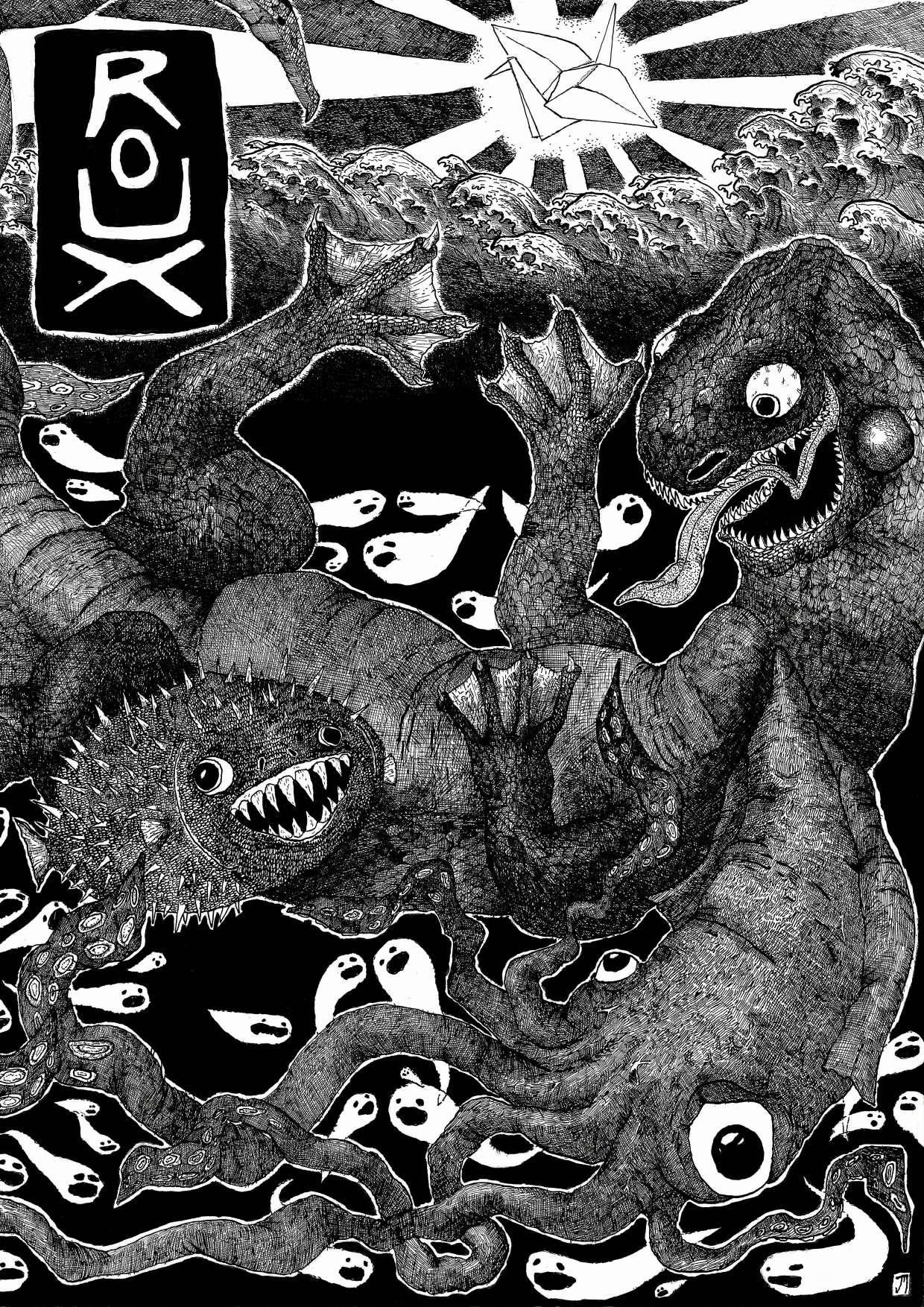
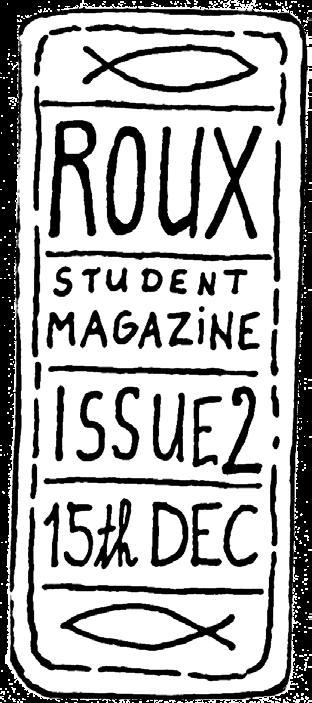

2, 15th December 2022
Luxembourg
Chief Editor: Rick Saamonen
Contents

Team: FERNANDES MAIA José Luis — dip pen nib; ink distributor
GAUBE Valère — writer; universal dilettante; mythomaniac
JACQUEMIN Jennifer — writer; gamer; head chef
MILLER Sofia — actually blonde ginger; artist; cartoonist
MOGLIA Jacopo — writer; ballotter; contemplator
MOUZAKITI Eleni — writer; social media; dream-purveyor
SALT Kieran Alexander — barely coherent rambling
SHATOKHINA Kristina — woman of vision; high priestess sofiya_10billion — film and multimedia expert
STATSENKO Liza — photographer
TAJTI Zoltan — idiot; inhaler of coffee; gobbler of chocolate
We are thankful for the help of the Office of Student Life and the following people: Veerle Waterplas, Sonja Di Renzo, Antonio Tavan, Repro Team, Anouk Wies, Karin Langumier, Bianca Pirelli, the lovely people of Student Lounge Belval and all children of SAUL, Dalmat CoffeeHouse, and LLC.
Unless otherwise noted, all images in the magazine are public domain as described in the Creative Commons CC0-1.0 Universal Public Domain Dedication licence, and fall under no copyright obligations.
Direct all copyright claims to: paper.roux@gmail.com
Find us at: campus buildings (reception areas, magazine stands), Student Lounges, chill-out-zones, Dalmat Coffe House, and LLC.
Join us! We are always looking for graphic designers,writers, rhymers, photographers, milliners, wick dippers, bottle cork ers and especially uncorkers. Contactamente: paper.roux@gmail.com
Digital: https://issuu.com/rouxmagazine
IG: @roux.magazine
Cover and centrefold poster hand-drawn by: José Luis Fernandes Maia Photos on pages 28 and 29 by: Liza Statsenko
©ROUX Mudent Stagazine
All rights reversed
2 Why is the river in Esch covered? Acute and accurate documentary 4 Rector extraordinaire Interview with theatre kid Prof. Dr Stéphane Pallage 8 Art therapy on a budget Paint the pain away 10 An artist needs to be hungry! Interview with movie director Adolf El Assal 14 Poster centrefold Catfish and pipe, hand drawn in ink 16 Manic feminine Playlist for hysteria 18 Love object Unsolicited essay on unsolicited erotics 20 Joe Shit the Ragman ROUX goes to a festival 24 Raclette party Xmas cardiovascular soirée 26 Entrapped for life Scary art review 28 Virtual photo gallery Exhibition of
Liza Statsenko
our own
ROUX Student Magazine EST 2022 Issue
Why the fuck Roux?
The great question that has echoed in the halls since the last and first issue was unleashed upon the world has been: why Roux? Why indeed - an excellent question, its asking an incontrovertible demonstration of the enlightened brilliance and inquisitiveness of our readers. More than that, it is a demonstration of the brilliant inquisitiveness and enlightenment of you readers, which might be the more impressive achievement.
So, then, why Roux? Why indeed? What is Roux, when is Roux, where is Roux, and, most of all, how are Roux doing?* These are the questions, and what questions they are; for these are indeed the key question forms that can be found and, when that finding is found out by a sufficiently well-developed mind, courageously asked. Such a mind need possess not just a well-sufficient level of development, but also great courage to be capable of contemplating such things, and therefore I must congratulate you, dear reader, for so courageously delving in that long developed well of your mind that you have arrived not only at the question but also to here, at its answer.
The answer, then, is simple, and to put it simply, this is the answer: Roux, (/ru:/), (n.), (sing.), (uncountable), (infinite), (eternal), (impossible). Et-

* We could do with a few more designers. Please postulate. 1
Why, oh, covereth thy river, ville d’Esch?
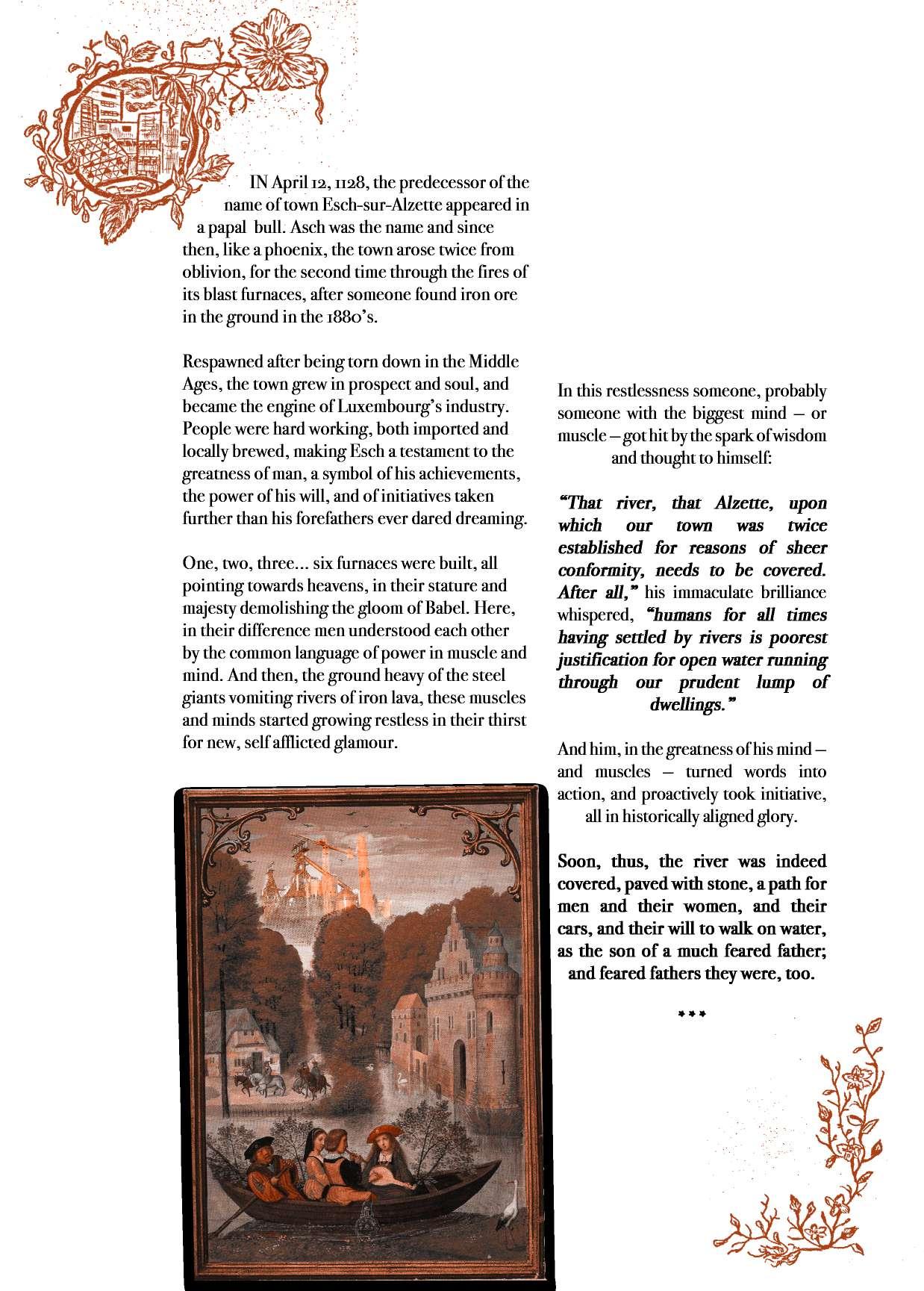 by Zoltan Tajti
by Zoltan Tajti
2 ACCURATE HISTORY AND ALL THAT
Years later, as the furnaces dried out, the town almost died again, history to roam repeated. There was no more need for heavy iron, no large scale demand for muscle.
Thus, the town has now been reborn from its ashes, in the freshening winds of practical knowledge, the prudence of our times. The steel giants were demolished, save for two, their skeletons upholstered as bibliothecas, research centres, laboratoria and uffici. Mind, seemingly, prevailed.
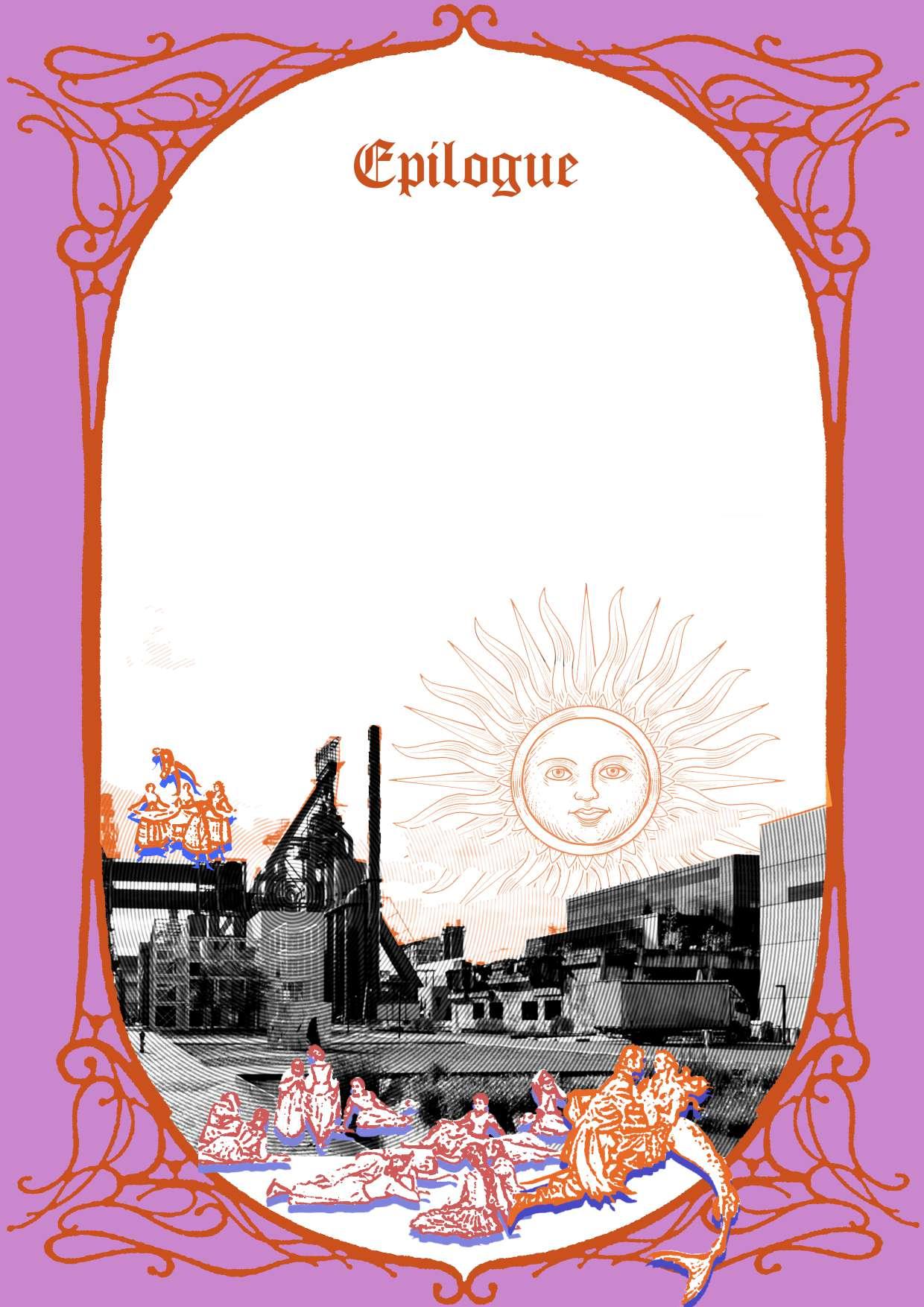
Yet those two, those two machines stand tall, ornamented and elaborate, by a single manifestation of minimalist symbolism, a narrowing, vertical pipe of red brick.
A ridged, protruding memento of the bulging muscle of man.
Yes, of man, and men only, once again in alignment with the virtue of diachrony.
3
Theatre kid, writer, poet
Theatre kid, writer, poet —
our rector extraordinaire
“I love this place” was the very first sentence our current rector, Prof. Dr Stéphane Pallage said to us when we started the interview. And so do we, thought us, not yet knowing how much else he has with us in common. Cups of coffee on the table, we talked creativity, the importance of friends, housing, and a bit of campus history. The following is an excerpt from the interview.
“I love this place” was the very first sentence our current rector, Prof. Dr Stephan Pallage said to us when we started the interview. And so do we, thought us, not yet knowing how much else he has with us in common. Cups of coffee on the table, we talked creativity, the importance of friends, housing, and a bit of campus history. The following is an excerpt from the interview.
Our student magazine is a cultural endeavour. We are students, we like to study, but we also like to be creative; we think culture is equally as integral a part of our community as research and education. How do you see the role of culture at a university?
Our student magazine is a cultural endeavour. We are students, we like to study, but we also like to be creative; we think culture is equally as integral a part of our community as research and education. How do you see the role of culture at a university?
— our rector extraordinaire Interview with rector Stéphane Pallage by
6-8 minute read
Zoltan Tajti 6-8 minute read
Zoltan Tajti
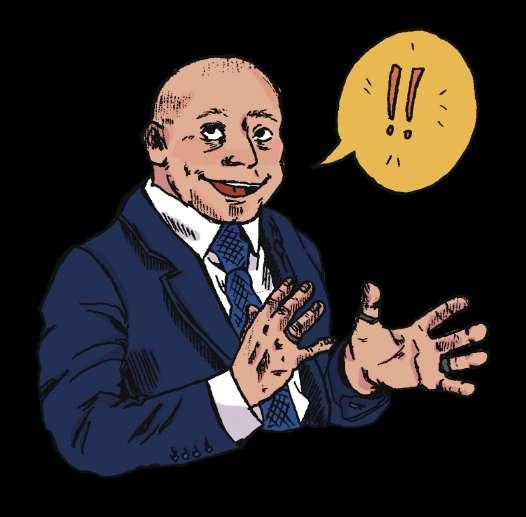
company. We would do everything by ourselves; I even wrote most of our plays.
After high school, in many moments of my life I have written poems and books. Some poems have been published, but the books usually tend to stay in the drawer (laughs). This year in November, however, I published my first book here, in Luxembourg. Creativity is very important for me.
After high school, in many moments of my life I have written poems and books. Some poems have been published, but the books usually tend to stay in the drawer (laughs). This year in November, however, I published my first book here, in Luxembourg. Creativity is very important for me.
Art is a must!
Art is a must!
Academy and culture go hand in hand together. This is clear in my mind, and I enjoy doing both! As a high school student in Belgium I started a theatre
Academy and culture go hand in hand together. This is clear in my mind, and I enjoy doing both! As a high school student in Belgium I started a theatre company. We would do everything by ourselves; I even wrote most of our plays.
I did my PhD studies at Carnegie Mellon University, in Pittsburgh. You might know the name Carnegie from the name of Carnegie Music Hall. That university was founded by Andrew Carnegie, an industrialist in Pittsburgh, which was very much an industrial site at the time of the university’s foundation. To some extent, the place was Just like Belval. The university’s emphasis was on tech-education, but it had the best arts education in the USA at the time.
I did my PhD studies at Carnegie Mellon University, in Pittsburgh. You might know the name Carnegie from the name of Carnegie Music Hall. That university was founded by Andrew Carnegie, an industrialist in Pittsburgh, which was very much an industrial site at the time of the university’s foundation. To some extent, the place was Just like Belval.
Interview with rector Stephan Pallage by
4
INTERVIEW WITH THEATRE KID PROF. DR STÉPHANE PALLAGE
The university’s emphasis was on tech-education, but it had the best arts education in the USA at the time.
As students we regularly attended theatre events, musicals that were easily of Broadway quality, with most of the actors actually going on to perform in London and Broadway itself. It was superb to escape the stress of the PhD thesis for a night, and witness art in such a spectacular quality. Culture is one of the most important aspects of student life, and life in general.
As students we regularly attended theatre events, musicals that were easily of Broadway quality, with most of the actors actually going on to perform in London and Broadway itself. It was superb to escape the stress of the PhD thesis for a night, and witness art in such a spectacular quality. Culture is one of the most important aspects of student life, and life in general.
Apart from culture, what were your strategies as a student, in creating your own identity as a person?
What do you do now, as a rector, to maintain your identity — and make your rectorship experience as human as possible?
What do you do now, as a rector, to maintain your identity — and make your rectorship experience as human as possible?
I have many goals. I actively participate in the development of the university, and that is a very creative job. Coming up with strategies is almost art, so having a background in art and creativity has proved to be very helpful even in the position of a rector.
I have many goals. I actively participate in the development of the university, and that is a very creative job. Coming up with strategies is almost art, so having a background in art and creativity has proved to be very helpful even in the position of a rector.
It’s all about people
Apart from culture, what were your strategies as a student, in creating your own identity as a person?
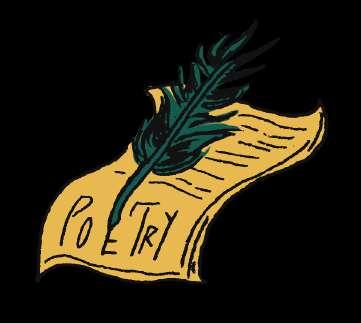
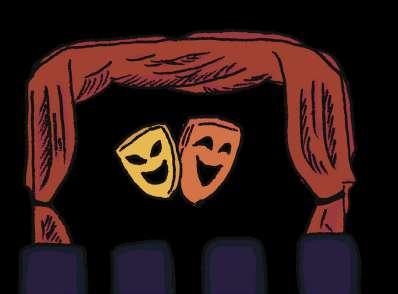
Friends! Friendships were very instrumental. I love studying, but I also love learning — I especially love learning about and from people. I was fortunate enough to be surrounded by extraordinary people during my studies, with whom random afternoon meetings would easily turn into night-long discussions and conversations. I had a fertile environment to learn who people are, and through this who I am.
Friends! Friendships were very instrumental. I love studying, but I also love learning — I especially love learning about people. I was fortunate enough to be surrounded by extraordinary people during my studises, with whom random afternoon meetings would easily turn into night-long discussions and conversations. I had a fertile environment to learn who people are, and through this who I am.
Also, although the university is sometimes considered merely as a group of buildings and organisational structures, the university is first and foremost the people studying and working here. I work with people — with very smart and very creative people. I am their partner, I consider myself more of a conductor than a boss. Quite a few of our people are leaders in their own field, so my goal cannot be to be smarter than them in what they know way better than I do. My goal can only be to ensure that the entire “orchestra” performs well together, i.e. to facilitate the individual “musicians” to perform to their own best.
It’s all about people
Also, although the university is sometimes considered merely as a group of buildings and organisational structures, the university is first and foremost the people studying and working here. I work with people — with very smart and very creative people. I am their partner, I consider myself more of a conductor than a boss. Quite a few of our people are leaders in their own field, so my goal cannot be to be smarter than them in what they know way better than I do. My goal can only be to ensure that the entire “orchestra” performs well together, i.e. to facilitate the individual “musicians” to perform to their own best.
ROUX
5
It’s all about people
Also, although the university is sometimes considered merely as a group of buildings and organisational structures, the university is first and foremost the people studying and working here. I work with people — with very smart and very creative people. I am their
I also write all of my speeches — and I give a lot of speeches. Apart from it being an inherently creative endeavour, it is also important that public speaking helps building relationships. I am honest in my speeches, and honesty creates bridges between people, because honesty implies vulnerability. It’s important to show who you are, if you want people to trust you.
I feel like the campus is going in the right direction to become a vibrant campus, which is what it is supposed to be. Keep in mind, though, that Belval is never going to be a closed campus like those in the US or UK — it is always going to involve its neighbouring towns as parts of the students’ environment.
There are a lot of developments on the way. There will be an aerial bike-road from Belval to Esch to enhance accessibility of the campus. In a few years, there will also be a fast tram directly connecting Luxembourg City (including the airport) and the Campus.
I’ve seen the university evolve for more than a quarter of its life during my five years here. I have seen a lot happen at this young university.
Campus changes
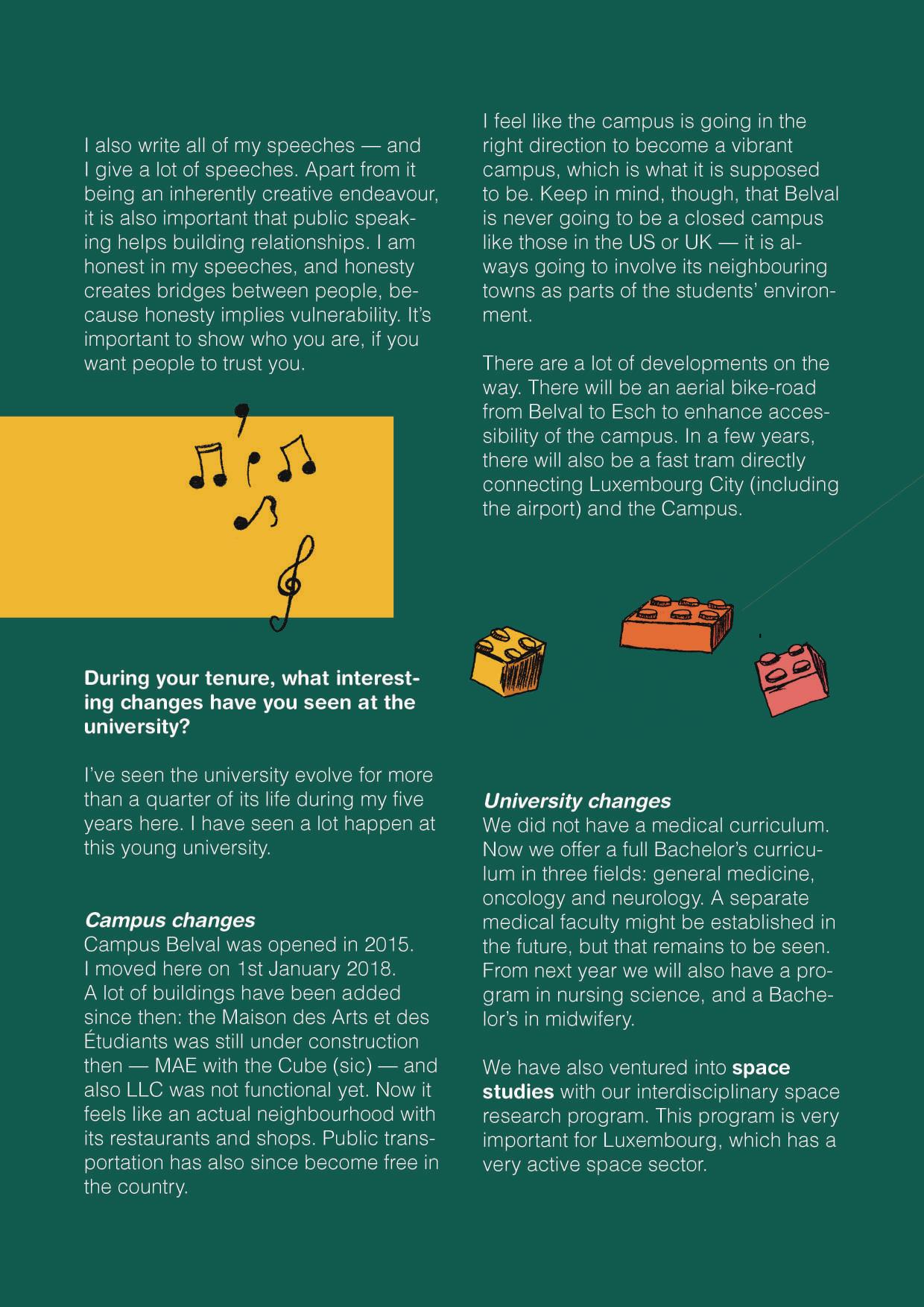
Campus Belval was opened in 2015. I moved here on 1st January 2018. A lot of buildings have been added since then: the Maison des Arts et des Étudiants was still under construction then — MAE with the Cube (sic) — and also LLC was not functional yet. Now it feels like an actual neighbourhood with its restaurants and shops. Public transportation has also since become free in the country.
University changes
We did not have a medical curriculum. Now we offer a full Bachelor’s curriculum in Medicine as well as specialist trainings in three fields: general medicine, oncology and neurology. A separate medical faculty might be established in the future, but that remains to be seen. From next year we will also have four Bachelor programs in specialised nursing, followed in 2024/2025 by Bachelor programs in midwifery, in radiology as well as by a Bachelor’s of Nursing in general care.
We have also ventured into space studies with our interdisciplinary space Master. This program is very important for Luxembourg, which has a very active space sector.
6
INTERVIEW WITH THEATRE KID PROF. DR STÉPHANE PALLAGE
We have also ventured into space studies with our interdisciplinary space Master. This program is very important for Luxembourg, which has a very active space sector.
What other changes would you like to see after you leave?
Many things, housing being one of them. There will be four small wooden towers in Belval, which will provide housing on site. Esch also has two projects that would host 250 and 100 students each. These are still being discussed, let’s hope they can move fast.
Petite Maison, sweet lego pet
Our architecture students can also help us. There is the Petite Maison*, a concept building developed in collaboration with the Master in Architecture (FHSE) program. It’s a small house, but a big project — and it could provide temporary housing for students. This building is like a lego construction; more can be joined together if needed.
The Dutch have container cities, which I like a lot. We could have a small neighbour-
hood of these houses. We need to rely on our own creativity as well, not just wait for investors to implement their ideas.
Would you think it would be possible to have spaces where us students can realise our creativity? Spaces that are encouraging, spaces we can claim for ourselves.
The answer is yes. Even the container house I mentioned could be utilised for that. We actually own that building, not just use it. Now it is behind MSA in the parking lot, but we could put it elsewhere. That building could be a sample model for such student-governed creative spaces.
Students, the campus is yours!
There are, however, spaces even now at students’ disposal. Such a space is for instance the MAE. That building really is your space, and I strongly encourage you — students — to use it!
For the full interview go to our digital copy: www.issuu. com/rouxmagazine/2022_december
*https://petitemaison.lu/
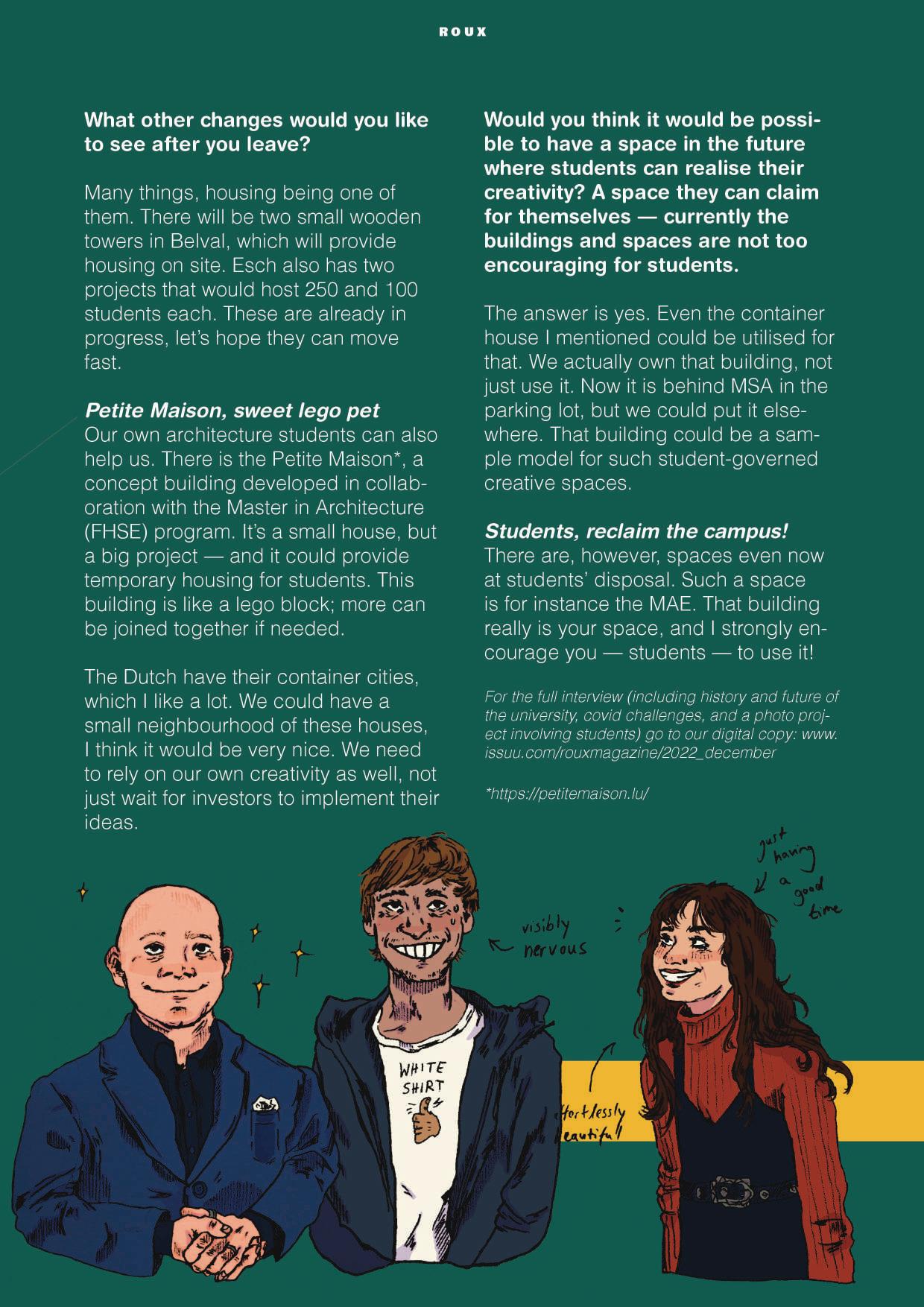
7
Art Therapy on a budget
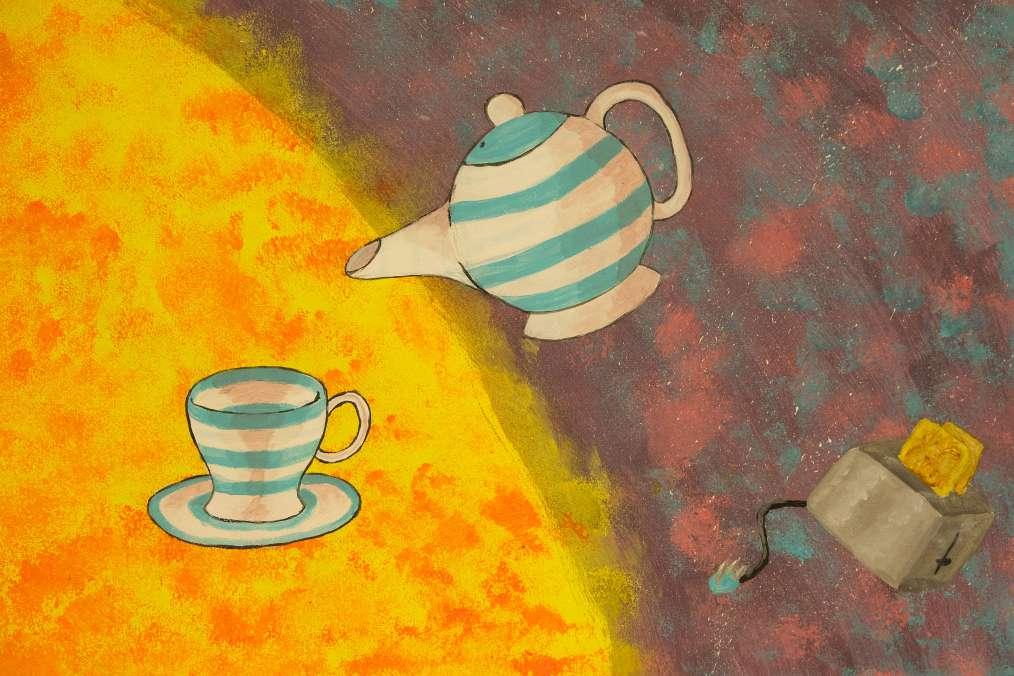 by Kieran Salt
by Kieran Salt
First of all let me preface this by saying I am by no means an artist, I wouldn’t even consider myself a painter. Nor for that matter am I a therapist, or even all that well put together. I’m simply someone who paints for fun.
Things all began when I was around the age of thirteen, like many nerdy kids I got very into model making – Airfix, Warhammer, you name it. I’d spend hours in an evening painstakingly adding details to yet another tiny figurine to add to my collection. However due to things like cost, and the surprisingly slow realisation that this wasn’t as cool as I thought, I stopped.
It wasn’t until last year that I even picked up a paintbrush again, and my how I had missed it.
After roping in a few friends and flatmates, spending less than the price of three pints at Action on paints and canvases, as well as buying a bottle of wine and some other things to take the edge off of painting together – we were ready. What came after was one of the most pleasant and relaxing nights-in I’d had since the pandemic began. We must have spent six hours sat in relative quiet, occasionally admiring each-others works in progress and muttering to ourselves about this or that colour.
8 PAINT THE PAIN AWAY
PAINT THE PAIN AWAY 8
So why bother to write about this at all?
Well, with the ongoing discussions around mental health on campus and the article written last month about it, I thought I’d throw my hat in the ring. Hopefully this doesn’t come across in the same way as one of those “exercise/meditate your way out of depression” conversations, but there is something very relaxing and at least mildly therapeutic about being absorbed in painting (or art in general for that matter). Now, I could wax lyrical about studies and therapeutic practices about art therapy, or go on (for far too long) about Marxist theories of alienation and the need for people to have an interaction to production that is not driven by the profit motive in modern society, and so on... But to keep things brief, painting is fun, fairly cheap, and surprisingly low effort.
As for the mental health side of things, I for one, am not particularly good at checking in with myself (toxic masculinity ‘n all that). However, I do notice that both the content of what I’m painting and my wandering thoughts whilst actually painting give a nice insight into how I’m feeling at the time. Additionally, there’s something relaxing and almost meditative about painting, with the texture of brushstrokes resembling zen gardens at times.
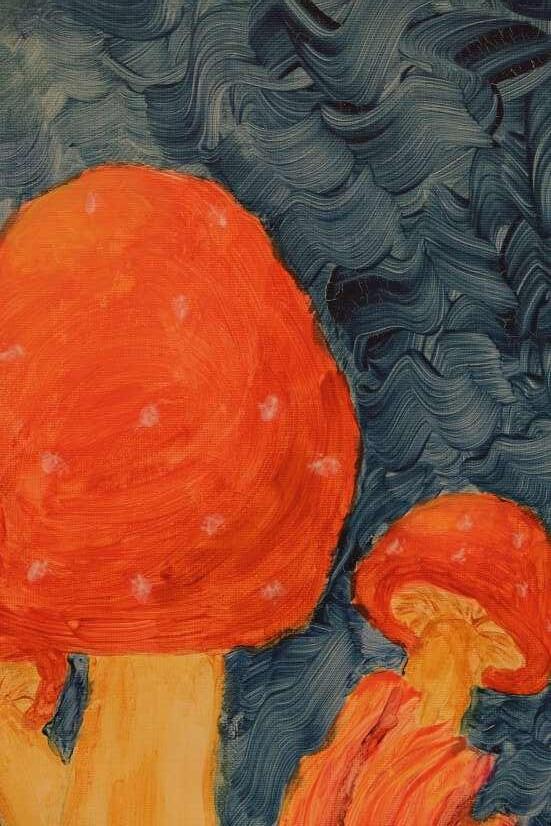
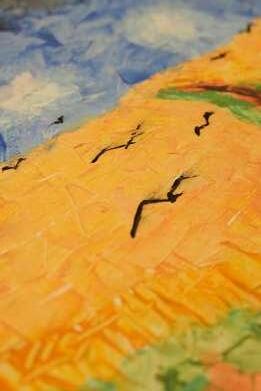
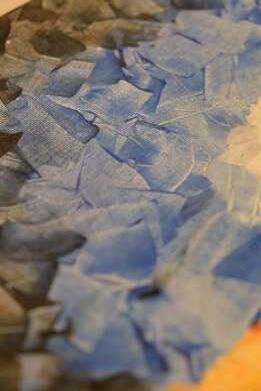
So much so that at the end you can take a step back and say “shit, did I make that?” Obviously not every time will be perfect, or even good, but you can always come back later and try to improve or touch things up – hell you can just paint over the whole thing and start over. And having something in life that doesn’t matter when it goes wrong, and you have the complete freedom to fuck up, for no consequence at all, is sorely needed at university.
So, if you’re bored one evening, tired of rewatching the same series on Netflix, or your favourite YouTube channel hasn’t uploaded in a while. Grab some friends or go alone and spend a few euros on a canvas, some paints and a brush or two and have a go! In the words of the great Bob Ross “we don’t make mistakes, only happy little accidents”.
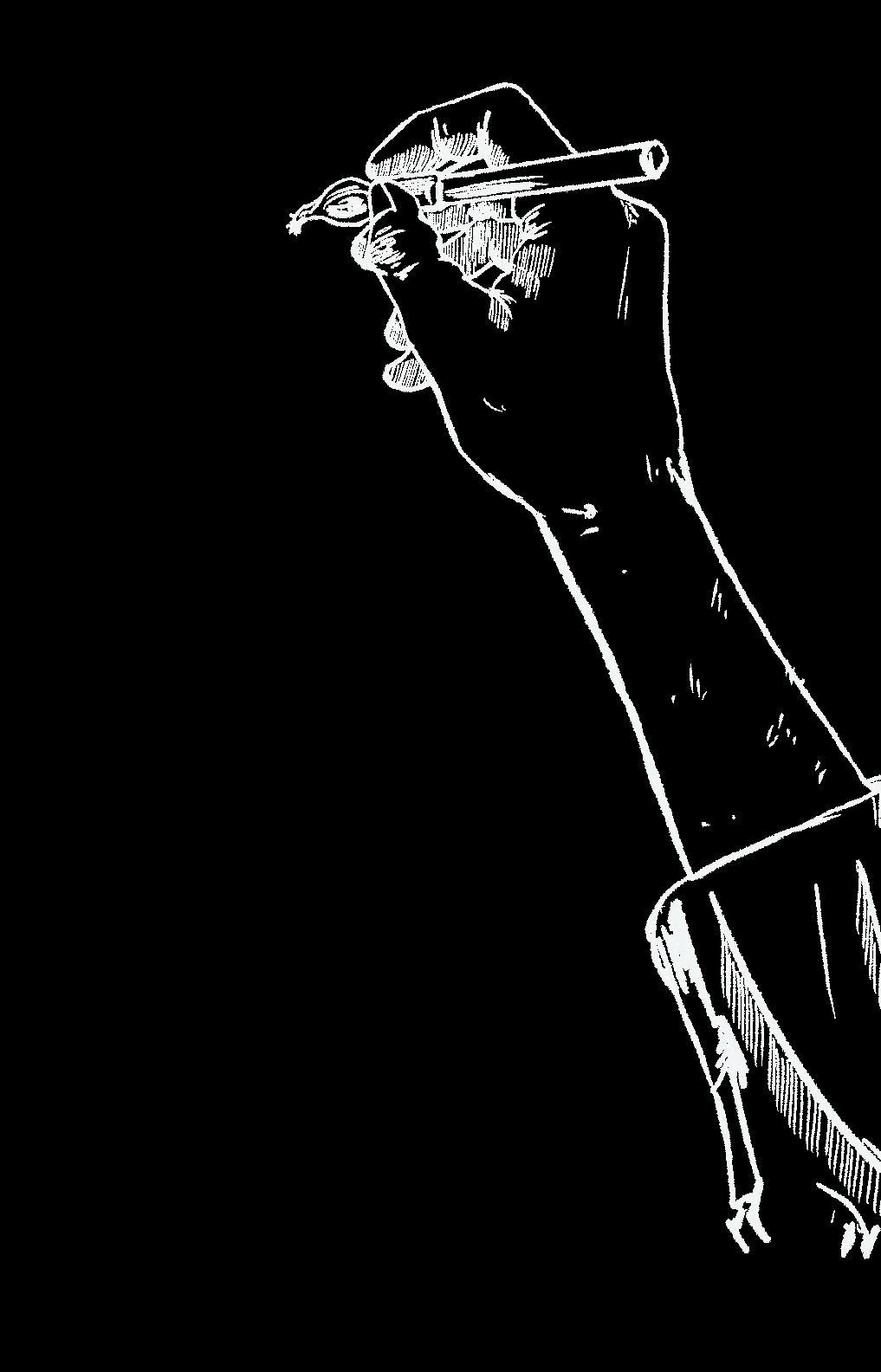
9
ROUX
An Artist Needs to be Hungry!
an Interview with Adolf El Assal by sofiya_10billion An Artist Needs to be Hungry! - an Interview with Adolf El Assal by sofiya_10billion
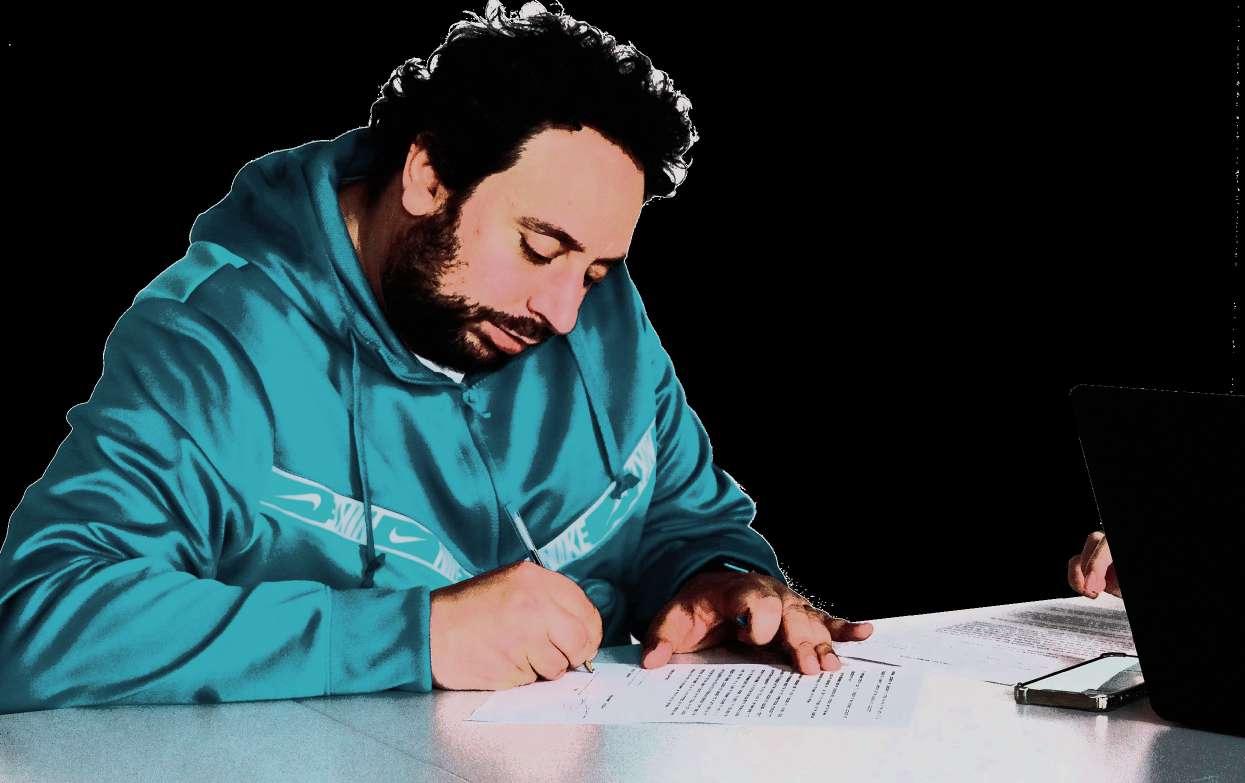
In March 2020 the first ever Luxembourgish fiction feature, Sawah (2019), was released on Netflix. I remember being impressed by this film so much that I dedicated a whole review to it. I wrote: “As a film director who had taken a number of attempts at taming Comedy, I know firsthand that she is a difficult child. Not everyone who tries succeeds at bringing her up to be decent; but those who do, possess an exceptional talent. [...] the film tells a story about an artist who, on his way to an art event, accidentally gets detained in Luxembourg and cannot leave the country [...] I laughed so much! I remember the professors kept telling us, for the viewer to like it, a story must first of all be relatable. What a film! Luxembourg from a perspective of a strayed foreigner [...] so perfectly captured, you bet relatable it was.”
Adolf El Assal, the director of Sawah (2019), is a great storyteller. He is a talented and conscientious producer, too. Among other things, his production company, Wady Films, recently helped bring about the Ukrainian masterpiece Pamfir (2022) - a picture so very engaging, authentic and poetic! Now, guess what? This man, whom I respect and admire, let me interrogate him for the dear readers of ROUX! So, get your pens and highlighters ready - we shall now learn how to build ourselves up from being homeless to making history.
sofiya_10billion: Present yourself in 2 sentences.
Adolf El Assal: 2 sentences? Oh, that’s a big challenge [laughs]. My name is Adolf El Assal. I’m 41 years old. I’m a filmmaker. My production company is called Wady Films and... I’ve been making films for the past 15 years or so. Is it enough or should I say something more?
S: Maybe you can tell us very briefly about your journey.
A: Yeah, okay. Well, I was born in Egypt in 1981. And I came to Luxembourg by mistake when I was 7 years old. I grew up in this country here until I was 21 (when I finished high school). Then I went to the United Kingdom to go to university where I studied, first of all, Bachelor in Media and Culture Studies and also did a bit of journalism. After that, I took a year off. Later I went back to university and did a Master’s in filmmaking. I graduated in 2008 from King’s University in the UK, and since then I’ve been working in the business.
INTERVIEW WITH MOVIE DIRECTOR ADOLF EL ASSAL 10
S: The production of multimedia and, in particular, of films is fairly costly, would you agree?
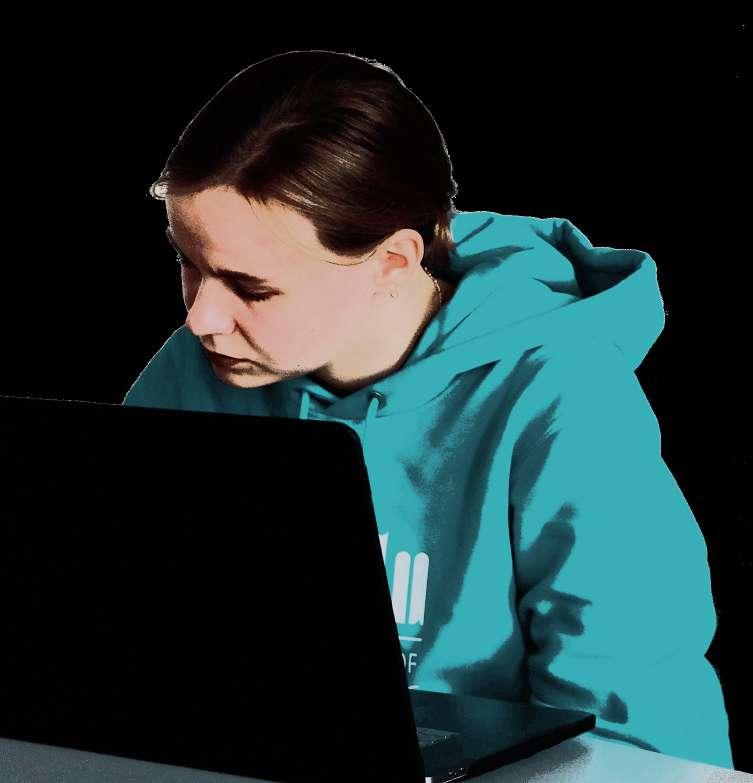
A: Costly? It depends. [...] to make films, it costs a lot of money. But, just to tell you, when I made my first film, which I shot with my two friends, it had zero budget... yeah, zero, simply zero. [...] All we paid for was a trip to Uganda in East Africa where we spent 18 days. We shot a film with the people there. We just had a story line but we improvised the dialogue and so on. [...] Technically it wasn’t the best thing, but we managed to make a film. At the beginning we wanted to just make a short film but it became a feature. Two years later the film was shown in the Berlin Film Festival in the Official Selection next to all the biggest directors in the world, okay? One cannot even believe what we experienced. The film went to all the top festivals in the world. We traveled so much. [...] But we got screwed financially. With that film we haven’t made a single cent still until today, okay? Because we didn’t know the whole business side. People, they used us... They made a lot of money behind our backs, and for us, we never got anything out of it because we signed papers out of excitement and so on. But that was an experience. That’s what gave me the confidence that we COULD make films.
I could do with a croissant
rn...

[...] Today, I am happy as a producer, my production company is one of the biggest in Luxembourg. We have films that travel all over the world. And then coming back to the costliness of films, over time I learned that you need money to make films. Not for every film, but you need money to make really professional films. You have a professional crew to pay, you have actors to pay, you have locations to pay - all this costs money, okay? And you don’t get it like that, which I really respect.
[...] Here in Europe in general, a lot of people... they don’t feel... when they make a film they don’t see that it’s a privilege to make a film with money and a crew. It’s a real privilege. A lot of people completely forget that. And that’s why when you see their films, well... [...] Most of those who made their first feature [with a normal or a big budget], they never did a second feature. Because they were crushed either by the industry itself, or by the audience of the film. The film is not good because they don’t have the experience.
S: Do you think that people who come from a less privileged background stand a chance at succeeding in this industry?
A: I’m a good example of that, like really. I came from the deepest poverty you can imagine. [...] It’s always good when you have life experience that makes you a better filmmaker. I think that most people that inspired me, they really came from nothing. They know how it is to struggle in life, okay? ‘Cause that’s where the best stories come from.
S: What do you think about film schools? Would you recommend attending film school to everyone?
7
A: Can I say this in an educational magazine? [laughs] One of my goals in life is, I would like to open a film school, okay? ‘Cause also part ROUX 11
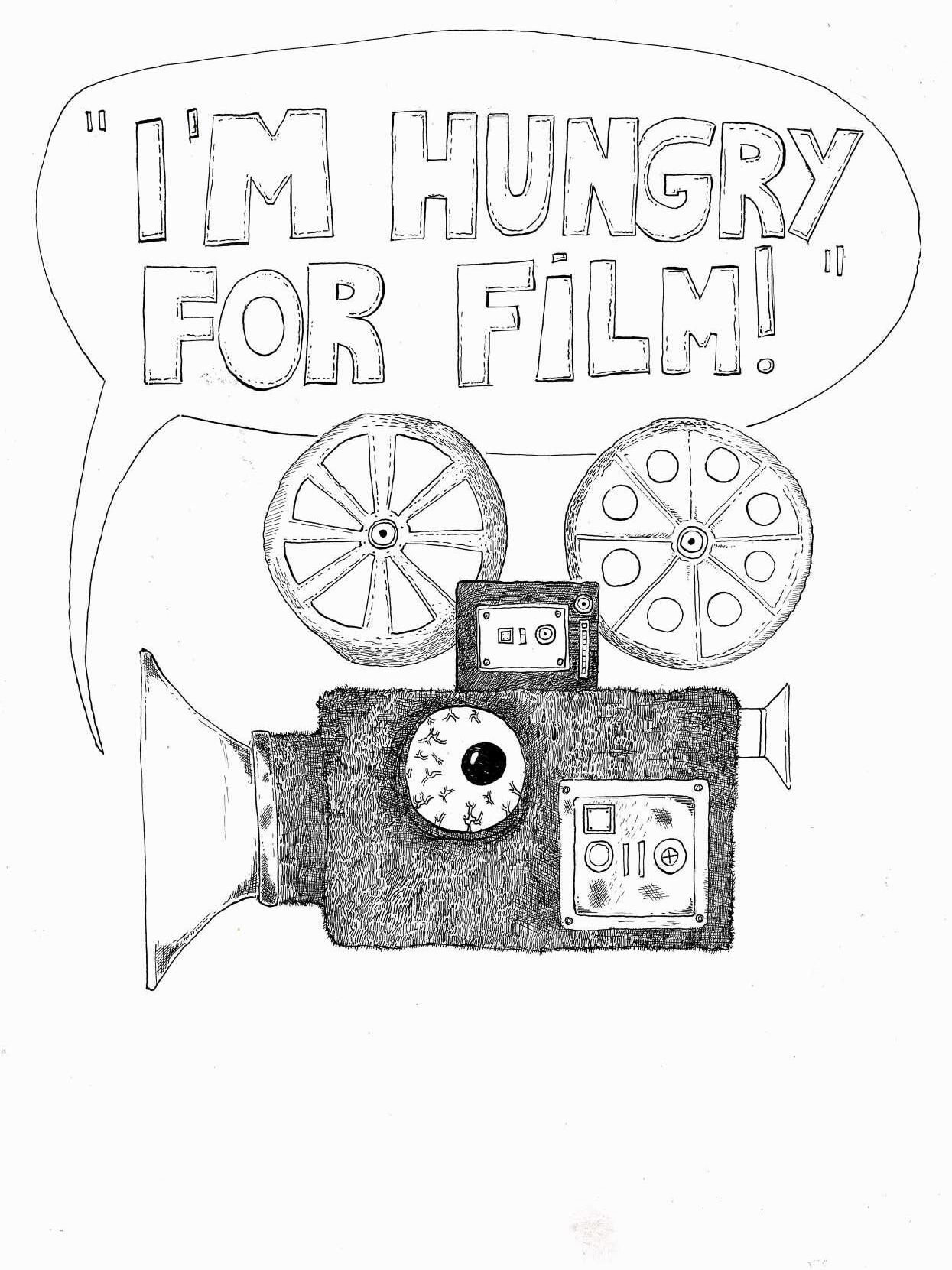
INTERVIEW WITH MOVIE DIRECTOR ADOLF EL ASSAL
of my story is that I tried to go to all the fancy film schools, and no one ever accepted me. They said I wasn’t interesting enough, wasn’t rich enough, I don’t know...
S: What is the most common reason people fail?
A: People fail, for me, because of lack of self-confidence. [...] If you’re a screenwriter or a director - that’s the most frustrating job in the world because it takes so long to write something and then to persuade people to give you money for you to do what you have written.
S: Do you think it’s hard to combine working in the film industry with having a family life?
A: It depends. [...] I’m very lucky ‘cause my wife, she is also an artist. [...] I was here in Luxembourg from 2012 to 2017... like for five years I didn’t make 1 cent working, I couldn’t find a job, I was focused just on my script “Sawah”, okay? And I was struggling so much to pay my rent. It was really crazy but my wife, she supported me really a lot. I had a space where I could focus on my work and so on and so forth. And then one day I finally got financed to make my film with proper means because we both believed in it.
S: So, would you say that an artist needs to be hungry?
A: Absolutely! You need to be very-very hungry, okay? And also be foolish, you know what I mean? Just to tell you, 10 years ago I was living in my car for almost a year. Here in Luxembourg. The thing is, I really believed so much in myself, I told myself: “I’m gonna make it, I don’t care, I’m gonna make it”. I was living in my car and I wasn’t getting any social help because I didn’t have an address. I’m Luxembourgish, I have a Luxembourgish passport, but no social system, nothing wanted to help me. [...] I was just living in my car, sometimes selling a DVD here and there, whatever. And then step-by-step I managed to build myself up, okay? Because I was so hungry I
knew I had to make it. And now everything’s changed...
S: Do you feel that you’re happy with where you’re at in your life right now?
A: Right now? I can’t be happier! [...] My last film for example, Sawah, I sacrificed everything to make this film: I sacrificed my own salary just to be able to do it because the producer didn’t believe in me. And the only thing where I was lucky enough is that I kept a lot of the rights (the producers don’t care about the rights when they think they will not make any money with the film). [...] So, since I had the rights, I approached Netflix myself and I negotiated with them.
[...] The 14th of May 2022 is when the film got released [on Netflix] and became such a huge success all over the world! [...] And thanks to that film I managed to do a TV series which is also on Netflix, it’s called Baraki. It also became such a huge hit. Now I’m doing my next feature film. Now at my own production company we have 8 feature films coming out next year alone, including Pamfir - the film that was at Cannes this year.
S: I’m really glad to hear that you’re happy! I hope things will keep coming your way.
A: I’m also happy because of my wife. I am so grateful that she sacrificed so much for me, that she really supported me from day one.
S: Any final words of inspiration for our readers and all the aspiring filmmakers?
A: Ooph, inspiration... believe in yourselfthat’s super important, no matter what you do, really. [...] If people tell you “no”, accept the “no”, no problem. Just show them that you can make it, okay? [...] Everyone told me: “You’ll never make it, you’re not interesting”. I said: “No problem, I’m gonna show you!” [...] But don’t make films - also, anything - don’t make it just to be on top. It’s not healthy [...] Let’s put it like this: believe in yourself, stay humble and be yourself.
13 ROUX
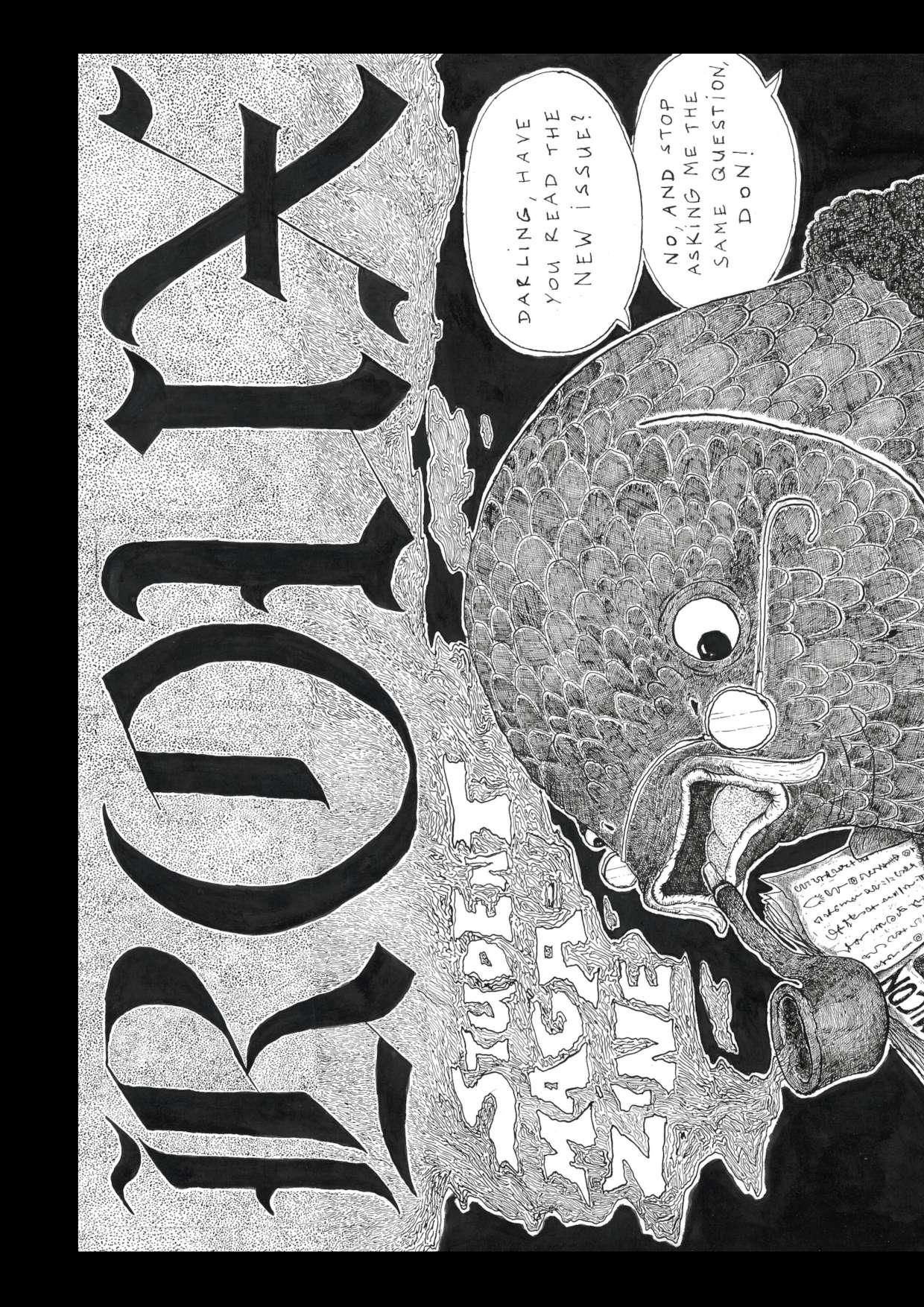

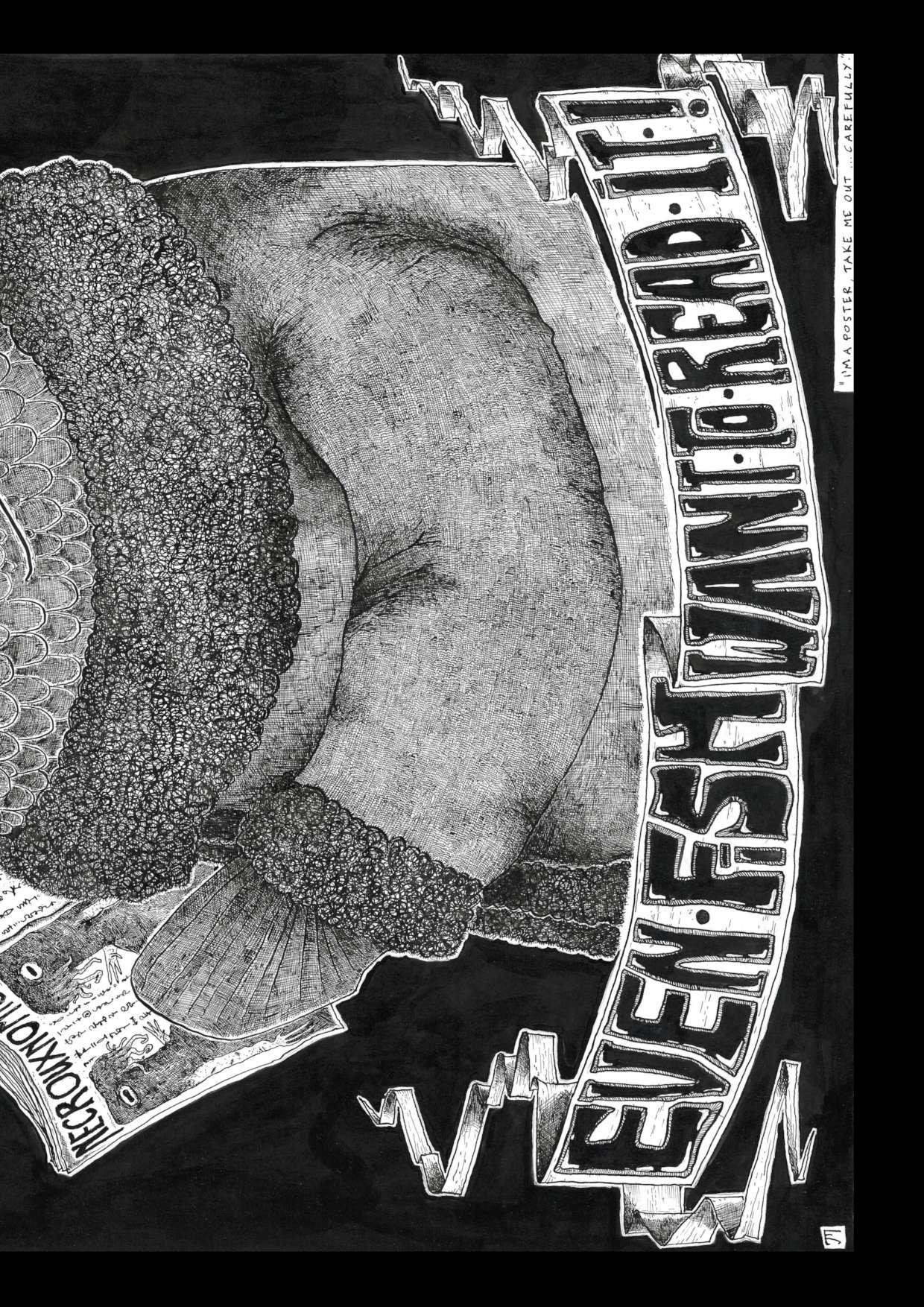
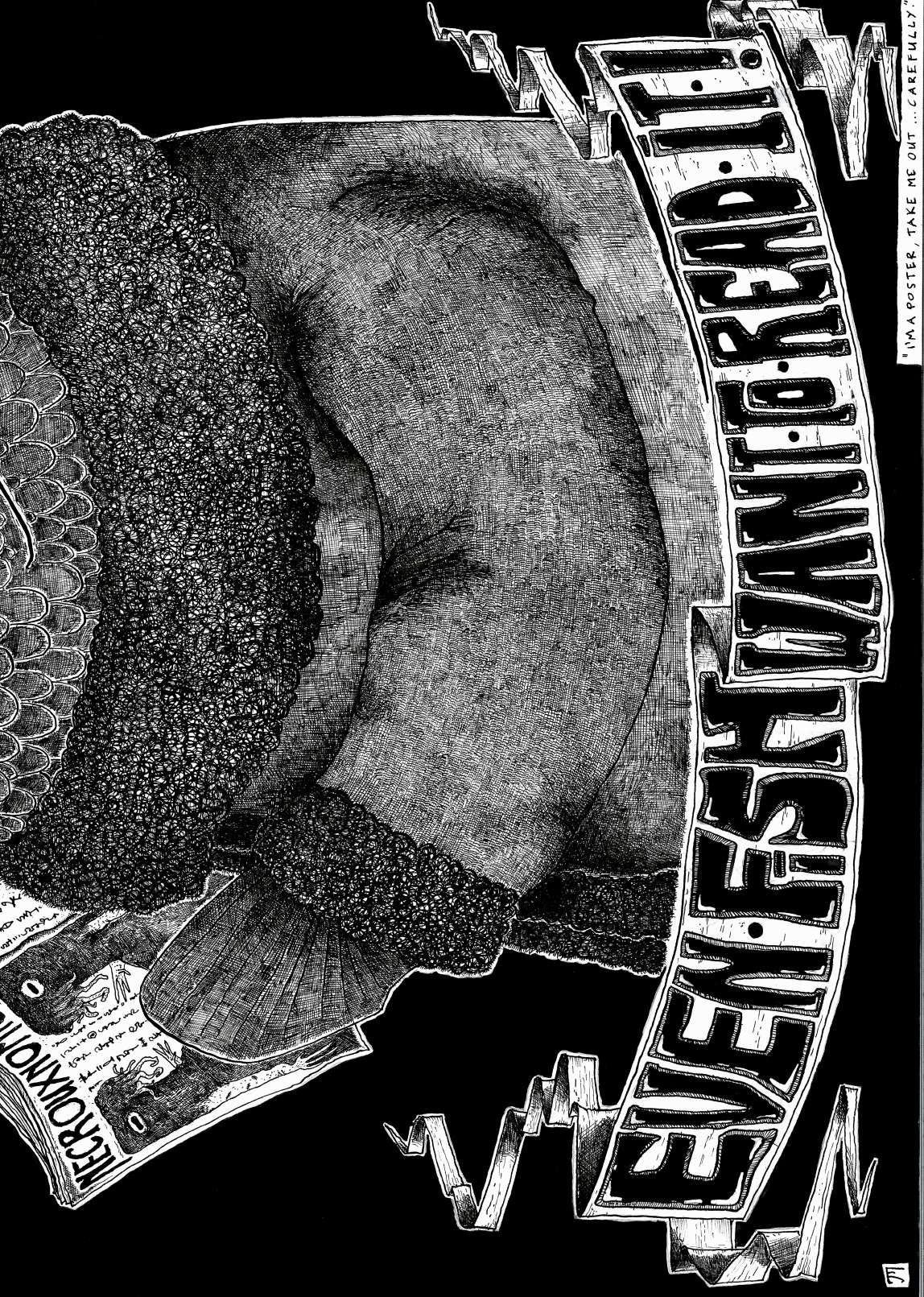
Manic feminine
Smoke City – Devil Mood
How often are you in a devil of a mood? This terrific psychedelic trip-hop sets the theme I’m going for in this playlist: sexy, wicked, fucking crazy.
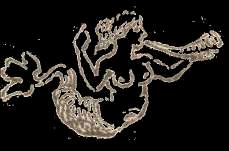
Deftones – Feiticeira
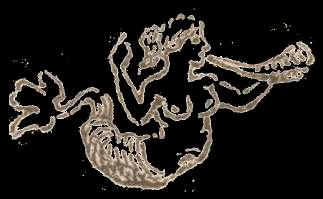
My favourite song about kidnapping men and holding them hostage (in a sexy, non-offensive way). “Untie me, untie me for now – you said you would, right? And now you will, right?” Of course, we’ll let him go... eventually.
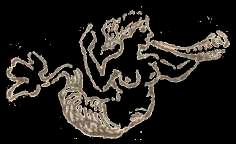
Chelsea Wolfe – Spun
Among the female archetypes, The Witch might be the only woman whose personality is not entirely based on body qualities. Witch is not a Virgin, not a Mother, not a Seductress. She serves no one but herself, she’s sovereign, she’s mad! She owes nothing, and that makes her dangerous. Here I suggest you to dive into some proper manic witchy self-care, such as wild ritual dancing in the moonlight, putting hexes on unfaithful lovers, and plotting mischief.
Portishead – Scorn
Legendary Portishead’s Glory Box in a darker, eerie sound. This song makes me want to be a woman; which is to be completely, utterly insane.
Nine Inch Nails – She’s gone away
She’s gone, she’s gone, she’s gone away.. We first heard this song in the 3rd Twin Peaks season, when Cooper’s favourite bubblegum came back in style. One cannot argue with it having a very Laura Palmer vibe to it... When I think about her, I think about the feeling that all women share – an unstoppable chaos, a spiralling storm inside, both tragic and terrifying.
Collide – White Rabbit
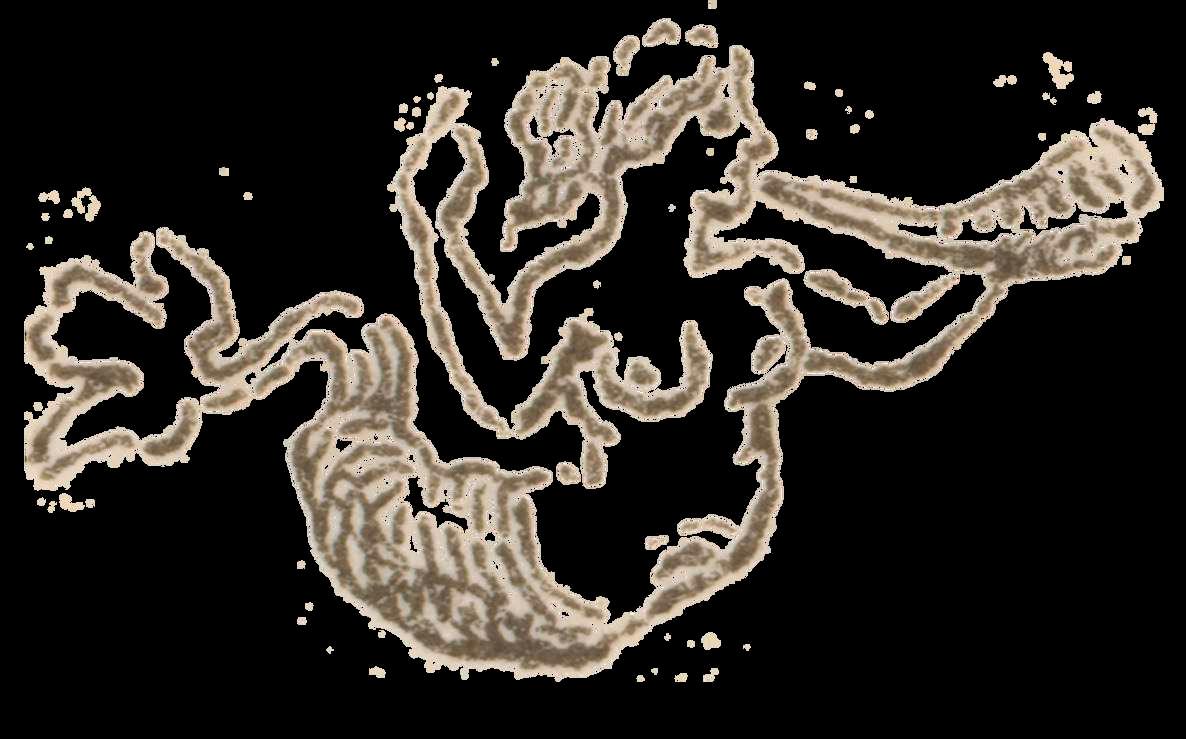
One day I’ll tell you a story about how I went chasing rabbits, fell down the furnace and ended up in Belval, where “logic and proportion have fallen sloppy dead”. This place can sometimes be so ugly, this place can sometimes be so strange, yet when the fog falls and the mighty towers disappear in its gloom, Belval becomes almost beautiful – a surreal scenery to correlate with inner despair, my very own distorted Wonderland. This cover is my manic girlie take on Belval, and I hope you enjoy seeing it as I do.
by Kristina Shatokhina playlist available on Spotify, tap search, scan QR code and enjoy the horrors <3
PLAYLIST FOR HYSTERIA
16
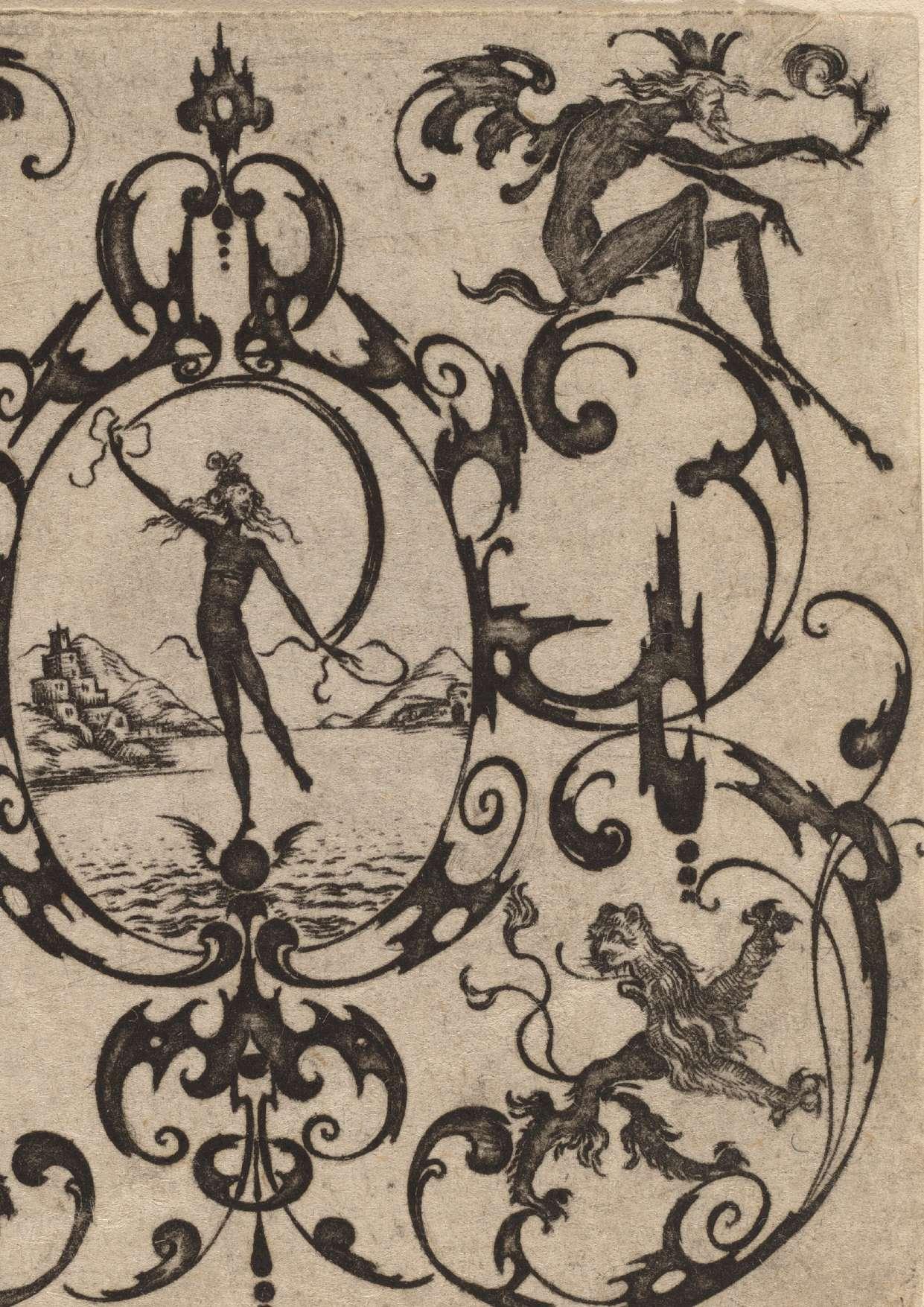
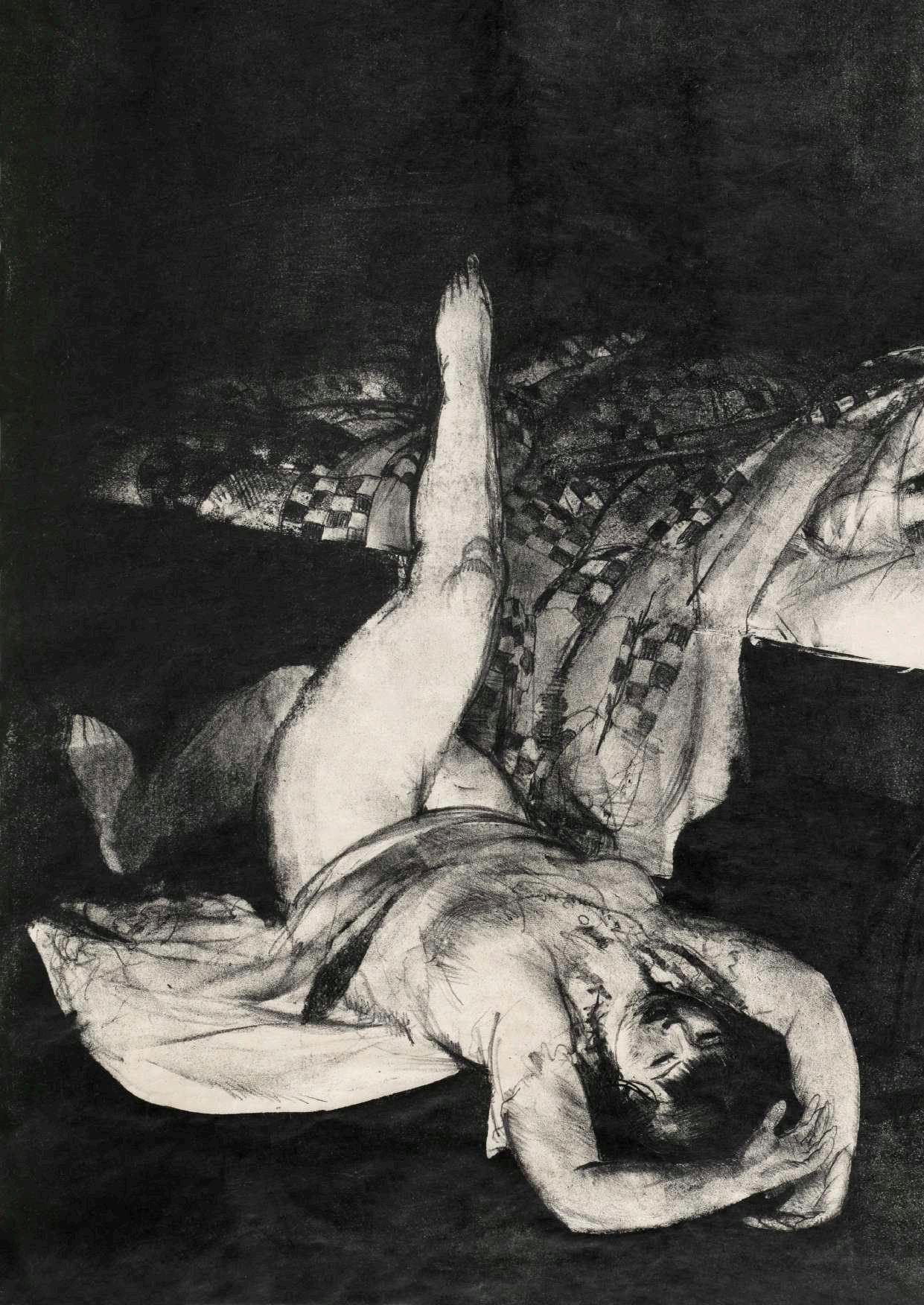
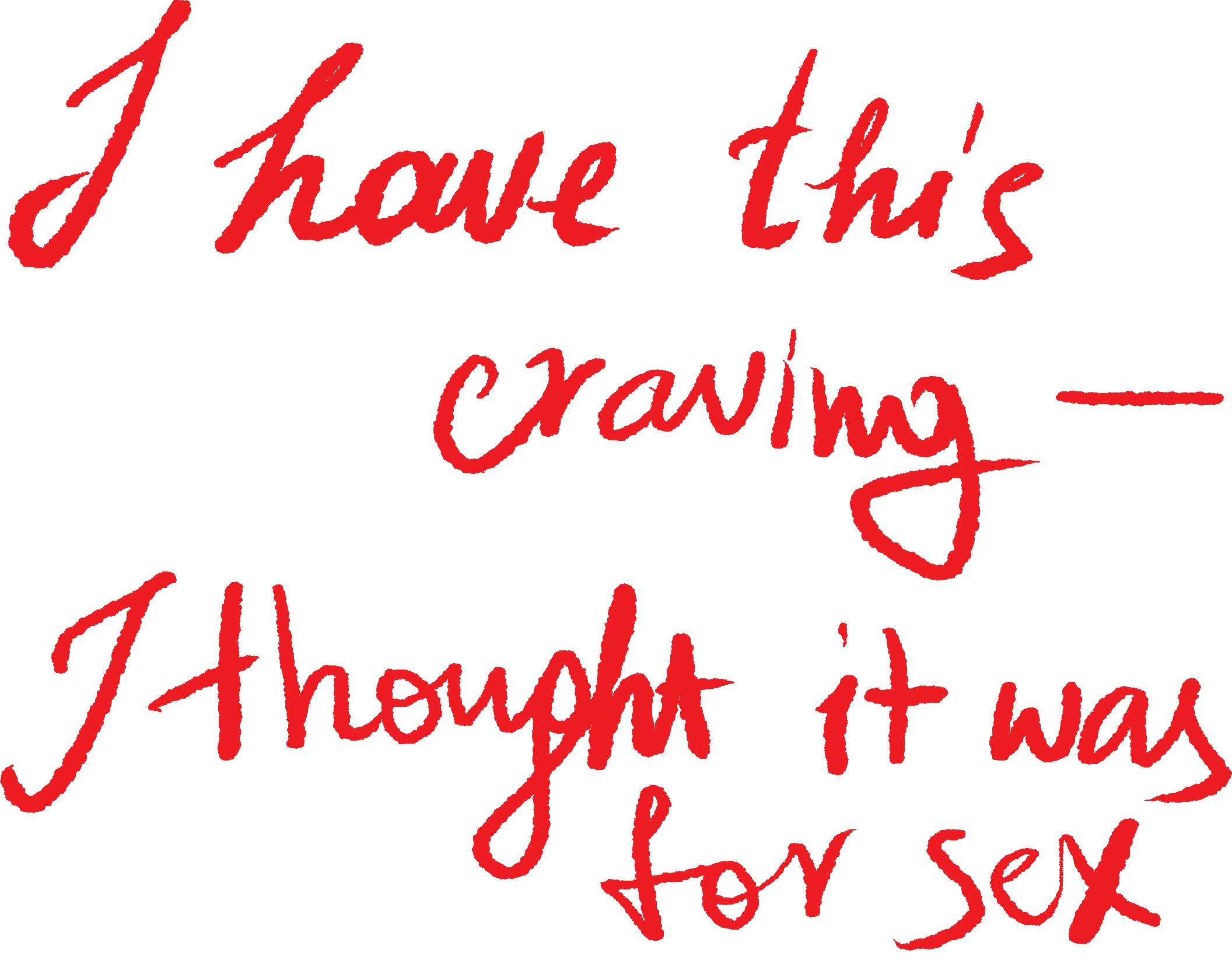
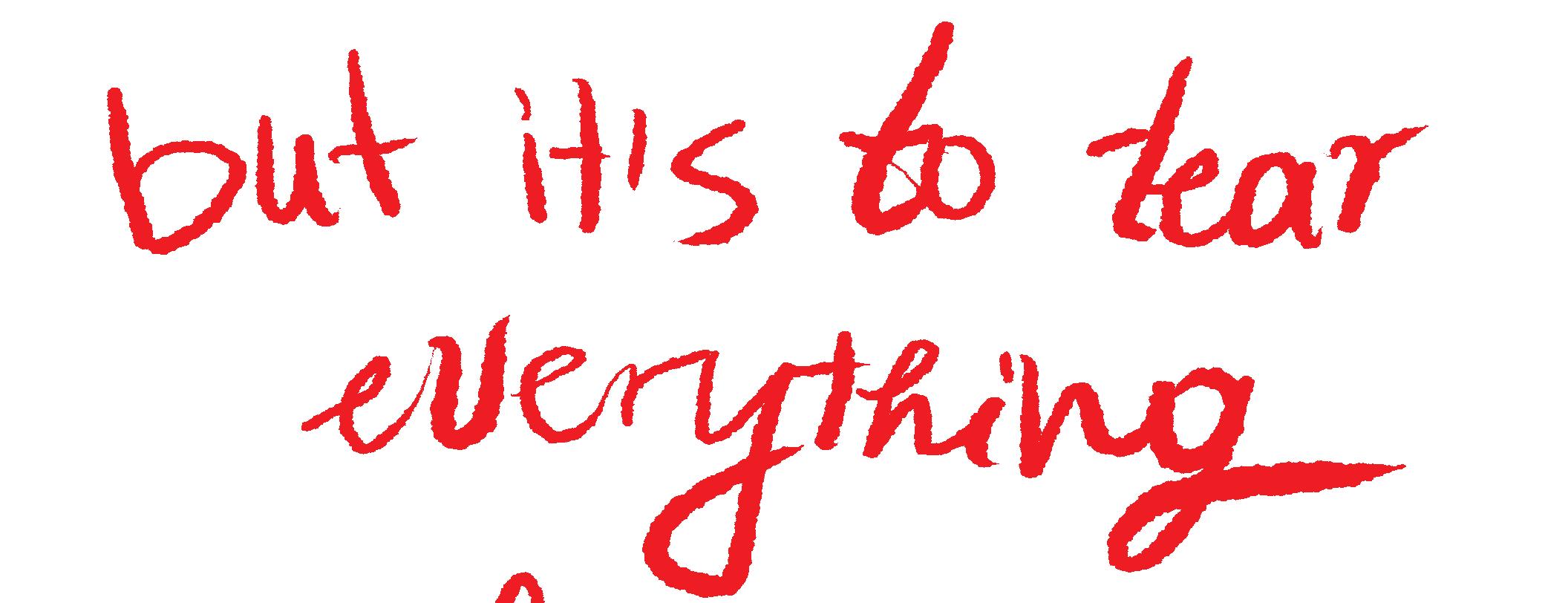

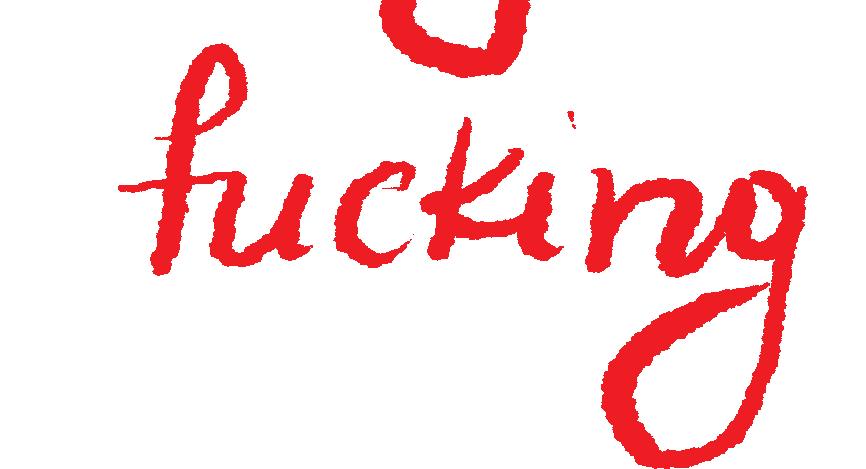
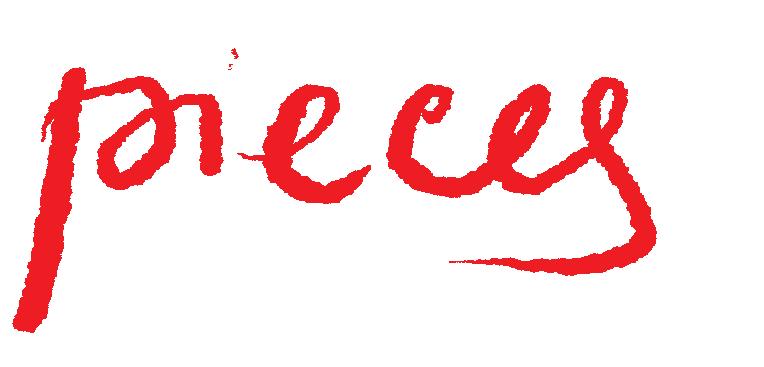
ROUX
Love Object
We love, and we love deep from affection, that affection always and with no exception seeded in visceral physical attraction. Our own heartbeat synchronous to clocks at present, that physical attraction is oftentimes the manifestation solely of primordial sexus.

Greeks had a god for the animal urge of humans: Eros, renamed to Cupid by the Romans, later appropriately depicted as the satyrically bellied creature of enforced automatism — a little lad with arrows. Eros was of course a symbolic concept, a concept only of a fragment of our operations; a fragment arguably of shattering influence, but a mi-
 by Zoltan Tajti
by Zoltan Tajti
Objectification follows, and it brings two kinds of fear and latent shame. On the one hand, it brings shame of the lover, and shame of the loved for accepting herself as the loved one. On the other hand, objectification carries fear and shame of accepting the other as a lover. The former includes the self-concept of accepting one’s own worthiness, and also of existing in the frightening comfort of seeing oneself as an object of Voluptas, by this becoming a love object whilst not sensing the burden of intrusive objectification.
Are we loving subjects?
Eros found himself a wife, the goddess Psyche, representation of mind and soul. The two had a child, Voluptas, a girl with a name that means pleasure. And so we are, with our souls and body in a tumultuous relation to each other, by gods, by inevitable nature. But are we living up to our humanity?
We abuse Voluptas, we at best ignore her, and in our physical simplemindedness look up to her father, times fitting. We idolise the body, violently and with perceived freedom, but locked out of content by its form itself.

The latter is accepting the lover as a person with both the physical and the spiritual inclinations of love, without fearing that person; i.e not considering her as a threat to oneself.
We worship Eros, or reject him altogether, and neither of such actions redeem us from our inability to connect to our deepest self, where sexuality and eroticism meet intellectual and aesthetic attraction. This attraction does not only involve surrendering to our desires, but also going against our natural cowardice towards the acceptance of the fallibility of our mind — the failure of awakening the soul now trapped in our physique.
UNSOLICITED ESSAY ON UNSOLICITED EROTICS
18
Erotica evicted

Intellectual eroticism — the fight for the goddess Voluptas — is suppressed, prevented and banished from our common psyche, and we live according to a modus operandi instead of living up to our capacities. We don’t fledge, we merely linger. We are anaesthetised, we are a mere avatar, our sexuality is merely a surgical wound through which we run the inevitable thread as if we ran it through clothes touching numb skin. We suffer, we all suffer from the mutual exchange of barriers we all produce against each other, and thus against ourselves.
We live in the Potemkin village of our voluntary and socially enforced creation, most of us not understanding the reasons behind our blindness, and the importance of the imperative of changing our ways; i.e. of changing our relation to ourselves.
I say, and do take it as a proclamation: let us free ourselves from the shackles of pure physicality, and brush off the link between our mind, soul and body. Sexuality needs to be elevated from the swampland of dumb sensation, and celebrated along with sensuality and intellect, along with the love of soul in mind. Our body reflects, is a liaison — not a vessel, and not a totem. It is our way, our only surface of mutual, uninterrupted, linear impetus. Our body is our continuity in attraction.
Love, into the clouds
Yet, let us respect the iterative force of our intellect, and succumb to the interruptions of the above linearity. Love, physical and spiritual love of our fellow beings — Voluptas embodied — is the manifestation of unlimited sexuality itself; not in the realm of animal desires but in the dimension of physical proximity and orgasm of the mind. Thus are we to elevate ourselves to our potential. Love, love, fellow beings, that is the only way known to us. The rest is a shrug of the shoulders.
Love in humility, virtuously and in sweet pain of pleasures. Destiny realised is law, a principle that binds; it is our very nature in making.
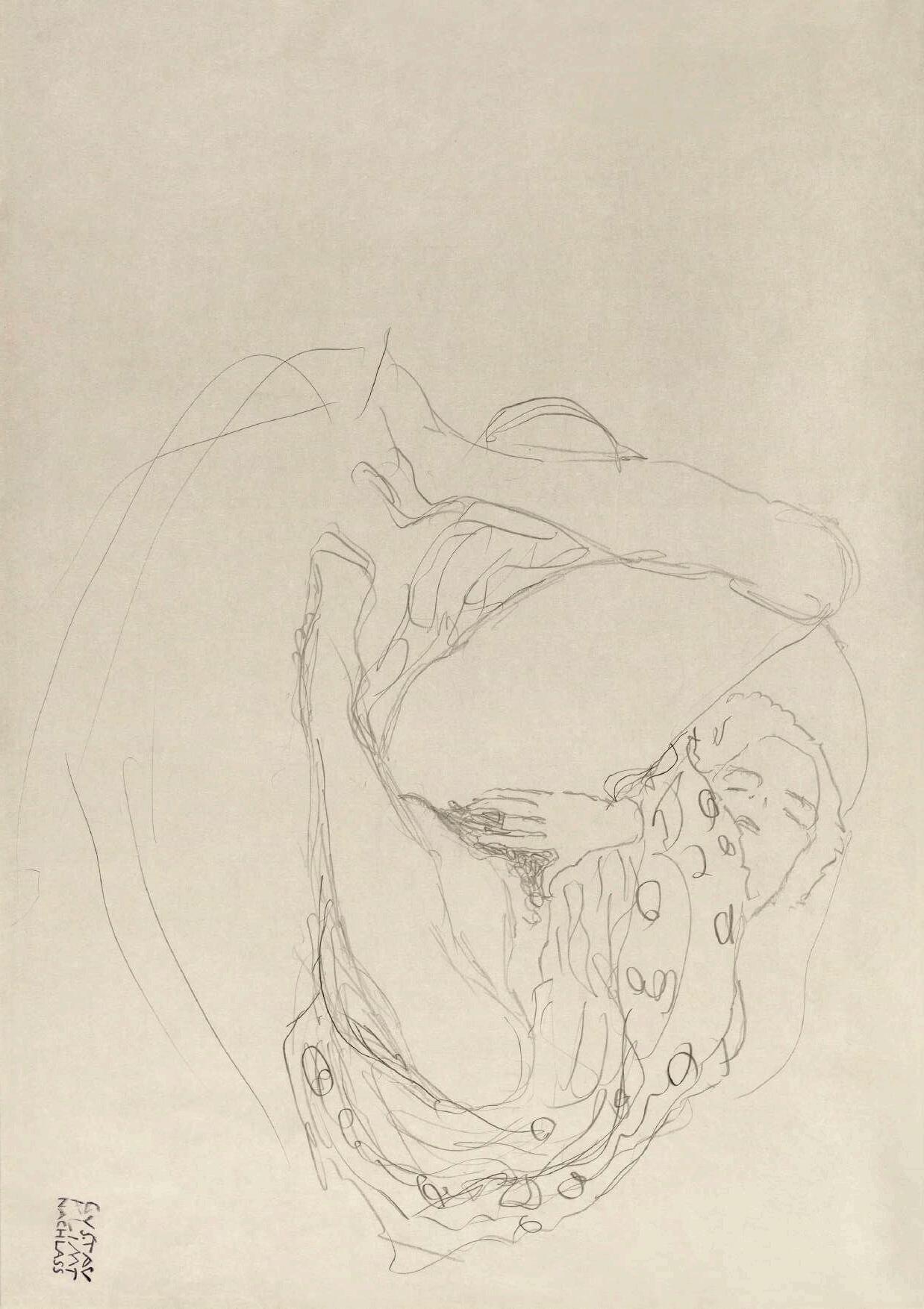
19 ROUX
Joe Shit the Ragman, or: ROUX goes to a festival
“Quidquid id est, timeō Danaōs et dōna ferentēs.” ~ Virgil, Aeneid, song II
One of the perks of writing for ROUX, the greatest stopgap on this side of Luxembourg’s cultural landscape, is that you get free stuff: tickets, mainly, for concerts, plays and exhibitions. One of the drawbacks of writing for ROUX is that you get free stuff: tickets for concerts, plays and exhibitions, when you had imagined a different course for your weekend. Now, the upsides do outweigh the downsides tenfold; but sometimes comes in the mail an invitation to an event that doesn’t inspire much confidence (to remain polite) and, sometimes, even those have to be honoured. Sometimes, finally, you lose a round of rock-paper-scissors.
This is how I ended up attending, in early December, a festival called FTF (and catching covid in the process). I must admit that my enthusiasm for the thing was so low that I never bothered to check what FTF stood for. Female To Female, maybe, or Faster Than Fast-food? Fuck The French? I have no idea. For all I know, it could stand for Flush Toilet Festival, because the music was, indeed, not very good – sorry for the spoiler. Of course, it was in Belgium, near Waterloo (not my favourite ABBA song). Like in 1815, rainfall had turned the field into mud and, since we’re at the date of the battle, I’ll say for the readers of The Charterhouse of Parma that I found myself as confused and disorientated as Fabrice del Dongo. For those who don’t get it: congratulations! that’s the feeling I’m trying to convey. Smoke, noise and people shouting in a strange language – and I do speak French. Lunar landscape and lunar atmosphere, and by that I mean that it was crowded with alien-looking people. In terms of cultural events, Belgium is to Luxembourg
what Mad Max is to the Atacama Desert: a little less barren, and with more loonies. At least – I told myself – the social entomologist that I am would have a field day.
The festival was surprisingly large. I got my hands on a promotional poster for it, which is included on the next page for those who’d like to know the line-up.
No band was good that weekend, but the worst one I heard was Dennis the Dainty & the Lackadaisies. The Lackadaisies were: Marty Milquetoast, Quaintin, Fey Freddie Feckless, Mild-mannered Clement and Peter Softbollock. Nothing special presentation-wise: just run-of-the-mill, cheesy dudes in T-shirts with ties printed on them. The performance itself was poppy-sloppy, folkyyolky, acoustic stringy-strangy, creatively bankrupt and played at molasses speed. Don’t-wake-the-cat-up-core. The singer proved that you could be a eunuch without necessarily being a castrato. Music for flightless birds. Let’s move on.
20 FESTIVAL REPORT
“OF COURSE, IT WAS IN BELGIUM.”
THE BABYSHAKERS•GROOVY FUNKY WARDEN &THE ELECTRIC INMATES•THE SCHOPENHAUER
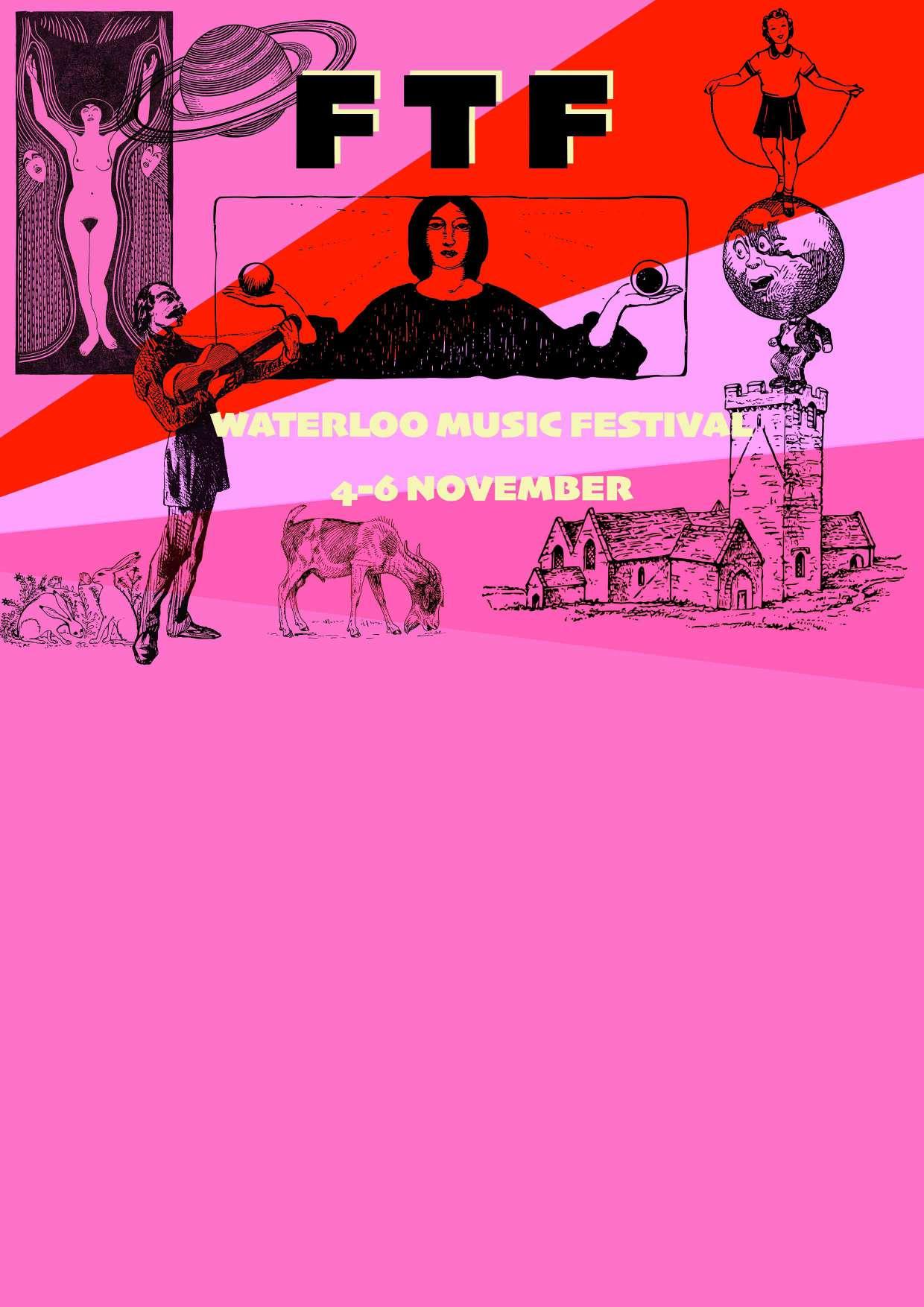
SUICIDE PREVENTION HOTLINE•BIG BLACK COW

THE NEW UNORIGINALS•ST JAMES OF THE BORDELLO&THE KICKERS
AGAINST THE PRICKS•REV RIGOR MORTIS&THE FAT FATALIST
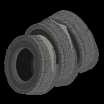
IKE BRAVADO&THE IP-DIP-DOGSHIT ROCK’N’ROLLERS
THE SHAKEN BABIES•ST VINCENT&THE GRENADINES•THE LIZARD BRAINS
GANG OF GIN•RAINER FIEBERSPRECHER&SPAM!•THE MARTINI POLICE
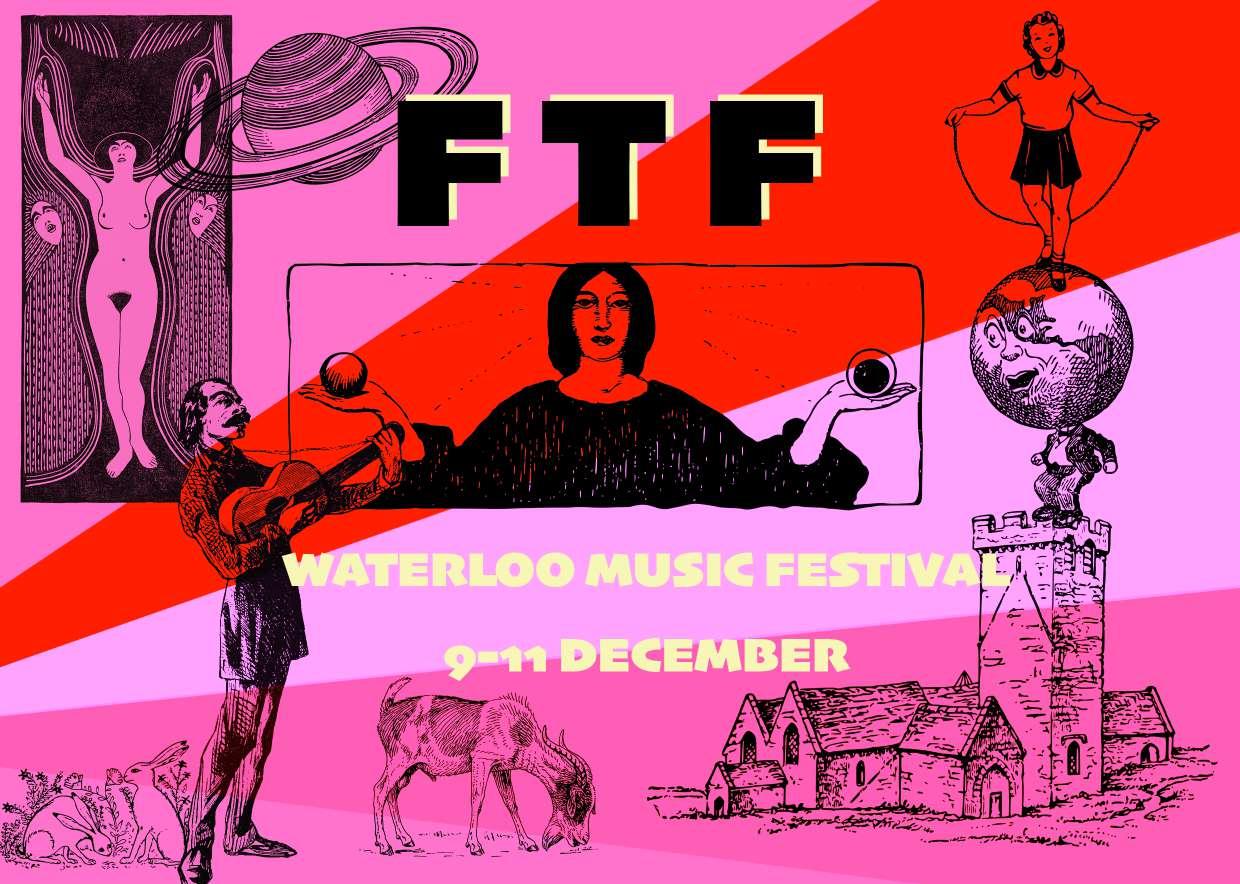
MISS JEN DURD&THE MISGENDERERS•DENNIS THE DAINTY&THE LACKADAISIES HALF-THE-QUARTER-OF-A-MAN&THE TWICE-AS-MUCH-AS-NOTHING-AT-ALL’S
JOE SHIT THE RAGMAN&HIS SKAG-AND-BONE BAND•THE POPTIMISTS
ENRICO OF THE END&THE SCATOLOGICAL ESCHATOLOGISTS•JOHNNY CRYSTALMETH&THE CHUCKLEFUCKS•SUNSHINE HIGH&THE SINGERS OF SAD SONGS•JACK THE FATALIST&THE SO-BE-IT UNION•GENERAL SMUTS&THE PULP ENJOYERS•THE TELEVISION PERSONALITIES•JUST ANOTHER SUCKER ON THE VINEYARD&THE GIN-SOAKED BOYS•BENVENUTO CELLINI&THE GAOLERS OF SANT’ANGELO PRESIDENT BILL CLEANTONE&THE SUPERSHREDDATORS•THE RIVALS OF PAINFUL GULCH•THE GREAT FUCK-ALL FIREBALLS•ANNE DEE&THE ANDY’S•THE THIRTY-SEVENTH OF SEBASTE&THE THIRTY-NINE OTHERS LARS MORIENDI&THE CADAVERIC COUNCIL•THE DOGMATIC SLUMBER PARTY•BABY WHINEALOT&THE SAD CUNTS
ПОГАНКА Motorol Energy Drink never tire Troglodyte Beer РЕСТОРАН diners&bars
I’d like to take the rest of this review to talk about my only marking experience at this festival: Joe Shit the Ragman & his Skag-andbone Band.

Calling Joe Shit’s voice whiskey-soaked would be an understatement. Tom Waits on “Jockey Full of Bourbon” is a whiskey-soaked voice; on “Big Black Mariah”, it veers into screamed-in-a-pillow territory. Joe Shit’s voice, on the other hand, is reminiscent of the dull rumble of scraping a heavy sideboard along the ground, with the texture of barbed wire. To account for the voice cracks, imagine the sideboard still filled with porcelains and cutlery. I seemed to hear the influence of Captain Beefheart in his tired lawnmower intonations; and, indeed, the crowd went mental when he launched himself into “Sure ‘Nuff ‘n’ Yes I Do” and followed it up
with “Ella Guru”. His set lasted roughly an hour, during which he burped and gurgled two dozen ditties about crop circles and the state of his liver.
As for his Skag-and-bone Band, there’s not much to say, I’m afraid: it’s all in the name. One of them is called Melvin, I think, and plays the washboard, when he’s in a state to do anything at all. This last remark is applicable to all the band members.
I met Joe Shit on the festival ground, by chance, on the evening of the day he performed. We grabbed a drink and started talking (I didn’t even need to use the little “open sesame” that is casually mentioning that I’m from ROUX). He’s an “original mind” for sure, but very affable, in spite of his breath. I have a few things to say about this tête-à-tête
My dear colleague sofiya_10billion conducted an interview for this issue, titled “An artist needs to be hungry!”, and no one exhibits this better than Joe Shit the Ragman. He has plastic bags (non-biodegradable) for shoes and a cardboard coat. He usually hangs around gas stations and blames his alcoholism on a tack piano in downtown New Orleans. He’s the drifter kind, a pilgrim of the American highway network, forever on the road like an illiterate Jack Kerouac; generally westbound, as if the Holy Sepulchre were to be found somewhere in California. Or is he just a godforsaken Cain, who lost his way even to the land of Nod? He told me that everyone is searching for the idea they’re ready to die for, the tomb in which to lay, at last, their weary bones. As long as they haven’t found it, they’re like the clouds, a plaything of the winds, which change every day. His speaking voice sounds like purging a radiator. Did Joe find his faith and was it at the bottom of a bottle of wine? I didn’t ask him the Gretchenfrage.
22 FESTIVAL REPORT
Joe Shit the Ragman and his band performing on stage Wellington. Shot on iPhone.
We stayed together until well into the night, seated on foldable camp ing chairs, conversing around beers and some card games he probably made up, such as figs and Formosa, skin the fox alive, who-loses-wins and saint-Cosmas-I-come-to-adore-you. We talked fishing rods, lightning rods, dowsing rods, King Herod’s massacre of the Innocent and Rachmaninoff’s piano concerto #3 in D minor.
Joe Shit likes angling and songs with hooks. He showed me a few of his catches. Some of them were truly impressive. The one he was most proud of was an authentic US army standard issue M-42 service boot from 1944. The thing was huge: at least size 48. A responsible fisherman, he returned it to the wild after taking a picture. I commended him for his skills as he put the photographs back in a small wallet bound in snake skin. He probably killed that snake himself, because only posers keep the DIY attitude confined to their music. And if there’s one thing you can’t deny about Joe Shit, it’s that he’s the real deal. Perhaps not a very good deal, but definitely a real one.
And this is how this pathetic festival experience ended on a strange and pleasant, a strangely pleasant note. In the morning, Joe Shit left in a camping car with all the band members he managed to find. I’ll interview him for the next issue of ROUX, provided he doesn’t die.
by Valère Gaube

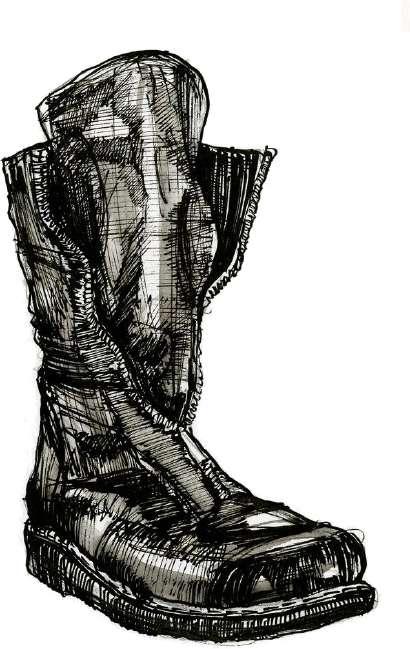
ROUX 23 This story is freely invented. There has never been a festival called FTF in Waterloo and all the bands are fictional. Any resemblance to an existing musical group is purely fortuitous.
Yes, I’m a Joe Shit the Ragman fan, how could you tell?
RACLETTE PARTY FOR THE HOLIDAYS
Christmas season is almost on. A time where families get together and gifts get exchanged. But what would all that be without the food accompanying the Christmas days. While traditionally Luxembourgers would often eat a sort of black pudding on Christmas Eve, nowadays many opt for the less traditional Raclette. Although not traditional, you would be hard pressed to find a Luxembourger that does not consider the Raclette to be a typical Luxembourgish meal for the winter times.
Especially among young people in Luxembourg, you will find many taking dusting off the Raclette grills for Christmas. And that is exactly why I am writing this article, to explain, to you reader, how to replicate this typically Luxembourgish Christmas meal.
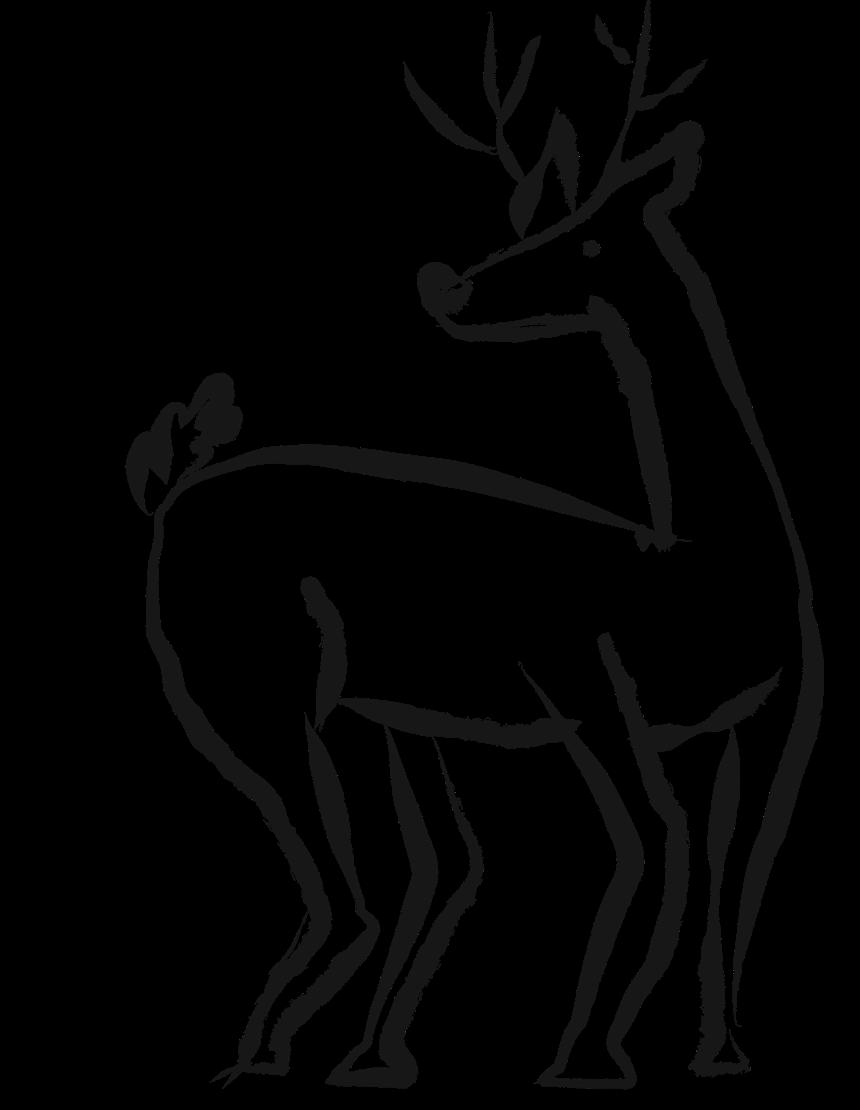
First and foremost, before you can make a Raclette dinner, you will need to get a Raclette grill. This vary greatly in size and price, just buy what is most appropriate for your budget and number of guests. A Raclette grill is usually made up of a metal or stone part, on which you can cook the meats and vegetables, and a compartment underneath it where you warm the cheese in small compartments.
The second most important thing, and arguably the star of the show, is the cheese. Around this time of year, you will find many varieties of Raclette cheese in pretty much every supermarket. Choose what you like or pick and choose between different cheeses for some added variety.
24 XMAS CARDIOVASCULAR SOIRÉE
Then you should get some potatoes to boil. Boiled potatoes topped with Raclette cheese make up the base for a perfect Raclette experience. They are usually served with the skin on.
After having the base, the rest is pretty much up to your and your guest’s personal taste. I will however offer some recommendations. Raclette is often accompanied by
Due to the fatty nature of the raclette it is traditional, and in my opinion also highly recommended, to serve something sour with your raclette. The most used acidic component are pickles. Pineapple can also be great, especially because it tastes amazing grilled.
All in all, the best thing about raclette is the customizable nature of the dish that makes it the perfect meal to enjoy with a group of people. Everyone is guaranteed to find ingredients they like to pair with the amazing base that is cheese and potatoes. It is vegetarian friendly and can even be enjoyed by vegans if one likes vegan cheese alternatives or omits the cheese entirely. For those reasons, you should definitely enjoy one or more raclettes this Christmas season with your friends, family and roommates.
some cold cuts, like ham or salami. Other popular meats are bacon and sausages, like the Mettwurscht, which can easily be cut up and put on the grill. If you want, you can even use thinly sized beef. However, other meats are a trickier affair due to the risk of cross-contamination. Quail eggs are also common to see in a Luxembourgish raclette meal.


Besides the meat, vegetables and mushrooms are also a welcome addition to freshen up the experience. As long as you thinly slice your vegetables you should be able to use every vegetable you enjoy grilled. The same goes for mushrooms.
Happy Holidays!
 by Jennifer Jacquemin
by Jennifer Jacquemin
ROUX
Entrapped for life
Stuck between two glass walls, in the isolation of a giant aquarium a predatory flower with four rectangular petals rests unassumingly. It’s unlike a Venus flytrap; mere presence will not trigger an attack. She is more like a wolf: her reflexes are awakened only when she senses movement of her future victim.
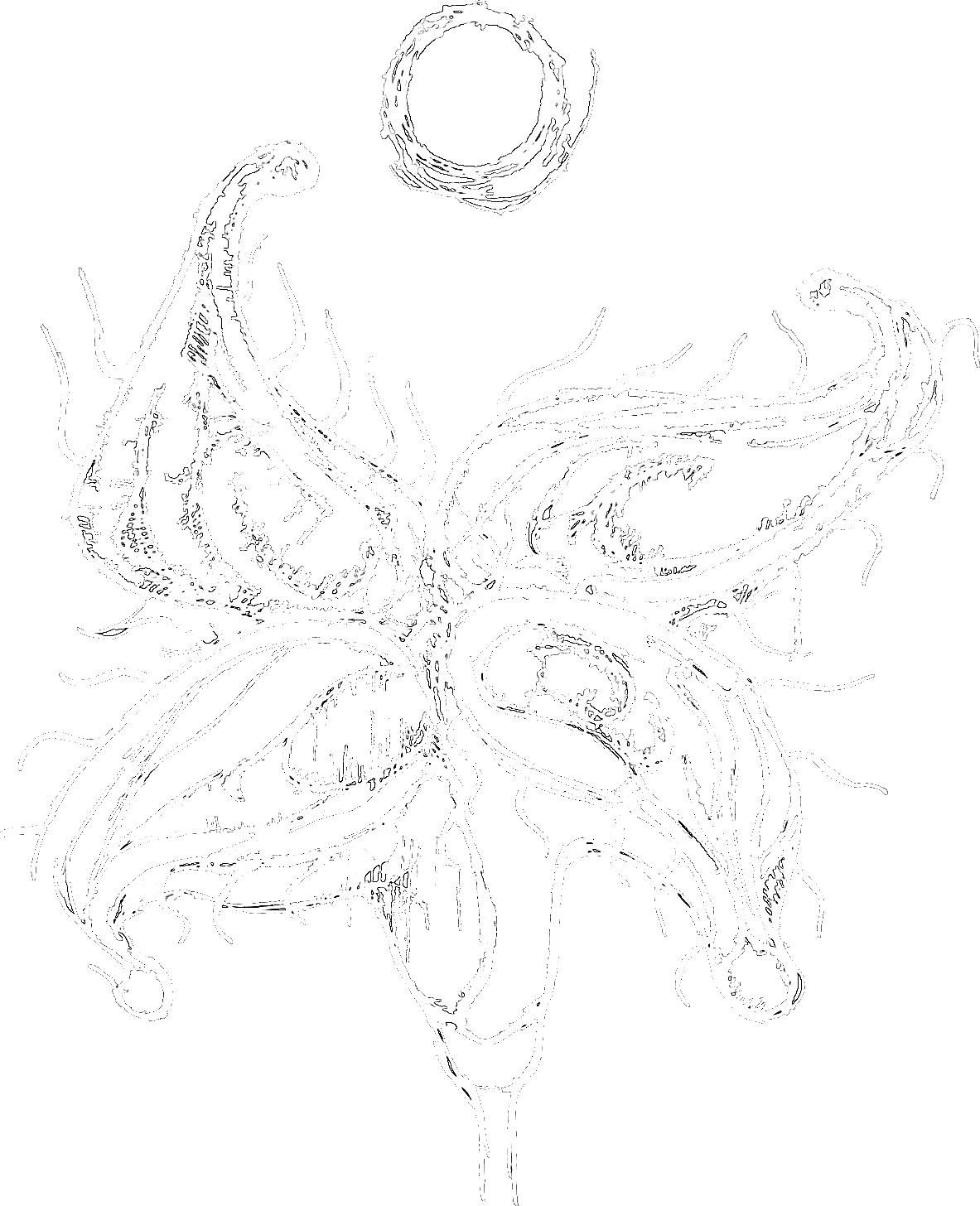
She posits us as offering, and by behaving as pure devices we become her self-fulfilling prophecies, and are soon deafened by a roar of a sine-wave and flooded by moving patterns of light and shadows — all constantly feeding back to themselves in circles of seemingly endless loops of creation. She’s a murderous perpetuum mobile, a slave to and stretching its own restrictions of its very operation, the cruel laws of physics.
by Zoltan Tajti
Phenotype and Ontogeny
Nika Schmitt, born in Luxembourg and now residing in Rotterdam, does sound installations. This one, the one in Rotondes’ cube, is a mobile one operated mostly by itself, and set off by the viewer stepping into the visual field of a motion sensor.
The sensor initiates two intertwined feedback loops — one of sound and one of light — the latter feeding off of the former, and both of themselves, in the two primary modalities of human communication.
Sound — The first loop is sonic. The direct response to our movement is a sound wave emitted from an upwards pointed speaker. The sound is picked up by a microphone suspended above the speaker, from a lever capable of horizontal rotation. The picked up sound is then fed back to the speaker, and as the microphone senses that sound up as well, we get feedback loop #1.
Light — The second loop is optical. The pendulum the microphone is attached to ends in a light bulb. The bulb is powered by electricity generated by the sonic signal of loop #1. Four solar panels placed around the speaker like petals of a giant flower swallow the light of the bulb and start off an engine spinning the lever, and with it the pivot of the pendulum ending in the microphone and the bulb. This is loop #2.
Short: Changes in the frequency of sound change the frequency of light, and thus the movement of the aided Foucault’s pendulum. The flower comes to life in the noise of its vocal pistil, devouring all light of its own making, its petals reflecting back the inevitably absorbed energy into itself.
ROTONDES AND GRAVITY 26
CUBE. It’s a hollow, even-sided body, two of its vertical square walls made of transparent glass. It is not in a gallery but a bar, so visits are at times unprompted, reception of art thus spilling onto factuality. Accidentally, screams of the predator trapped within also spill into open space, transcending the walls of the box; and so does the untrapped light of all surrounding movement. CUBE is a portal, a static device of two-way dynamics, a sneak preview into the in- and outside of our perceived boundaries.
Death and Decay
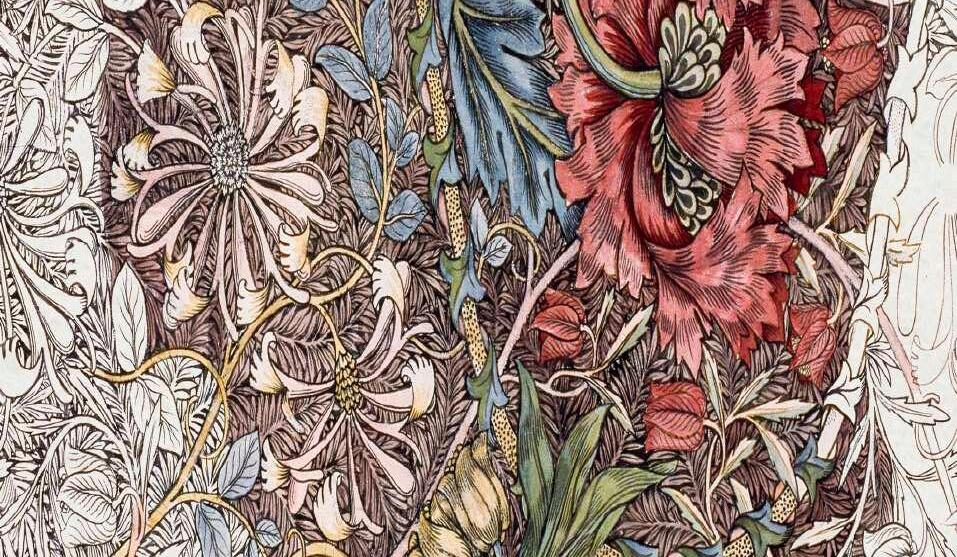
The volume for a while intensifies with every flicker of the spinning light, slowly but surely spearing through our eardrums, aiming to grab our threshold of pain, before gravity — both its friend and foe — kills it in a slow fade.
The pull of our globe, responsible for the regularity of the bulb’s curve in its swing and the circular feed of energy, the secondary instigator of our entrapment in the chant of the cube is gradually fulfilling its nature and saving us from ourselves. Our motion instigated our intended demise, a motion stemming from our own will to devour whatever the cube had to offer. We activated the trap of the petals, gravity favoured the kill for a moment, then it started working for us, to save our souls.
Standing motionless in the cacophony of the primitive wave we survive, accomplishing our mission, claiming victo-
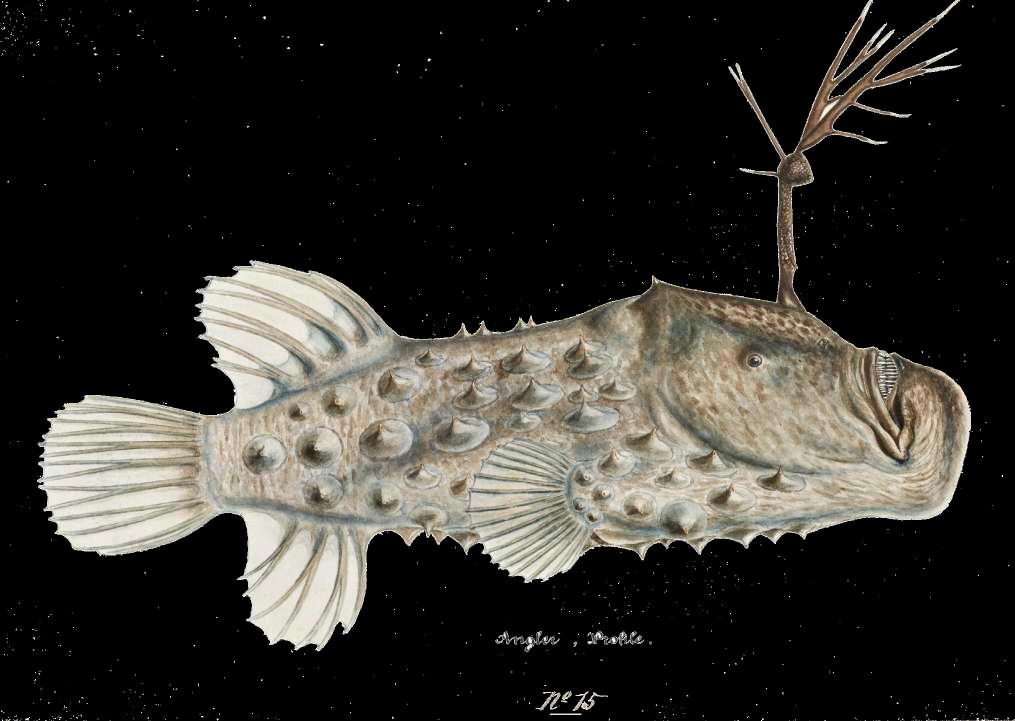
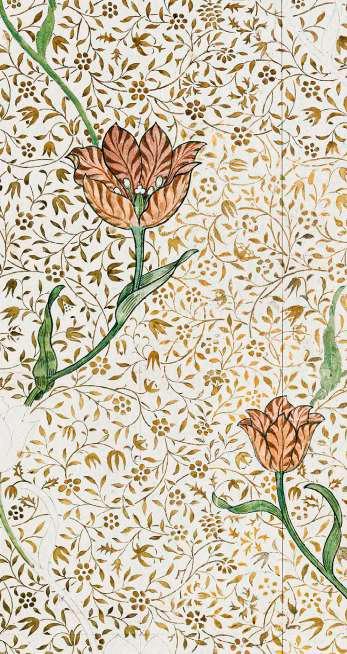
ry over simple nature, by sheer luck served by one of the basic motors of said nature. Art dies in front of our eyes and ears, only to be respawned in the following act of either deliberate or accidental consumption. Us and the flower, we appoint each other in reciprocity; the absence of one is the thriving of the other.
In complementarity activated by will, bottom-up forces collaborate with the top-down autocracy of humanity. Accidentally, for the time of consumption, we claim the win.
The essay is a reflection on Nika Schmitt’s installation “Sweet Zenith,” observable in Rotondes, until 29th January 2023. Entrance is free.
ROUX
27
Hello dear Roux reader,
If you want to travel through space and time, look into a photo. As a child, I would lose track of time while staring at photos of other places. Whether it was a bustling street, a quiet, cosy apartment, a snowy mountaintop, or a warm beachfront, I’d let my mind wander and imagine what it would feel like to be in that same spot. How the wind would feel, what sounds I would hear and most importantly, what emotions would I feel? And if there were people in the photo, what kind of lives did they lead? What sort of decisions did they make to get to that point in time? There were no right or wrong answers. It was my getaway without ever leaving my room.
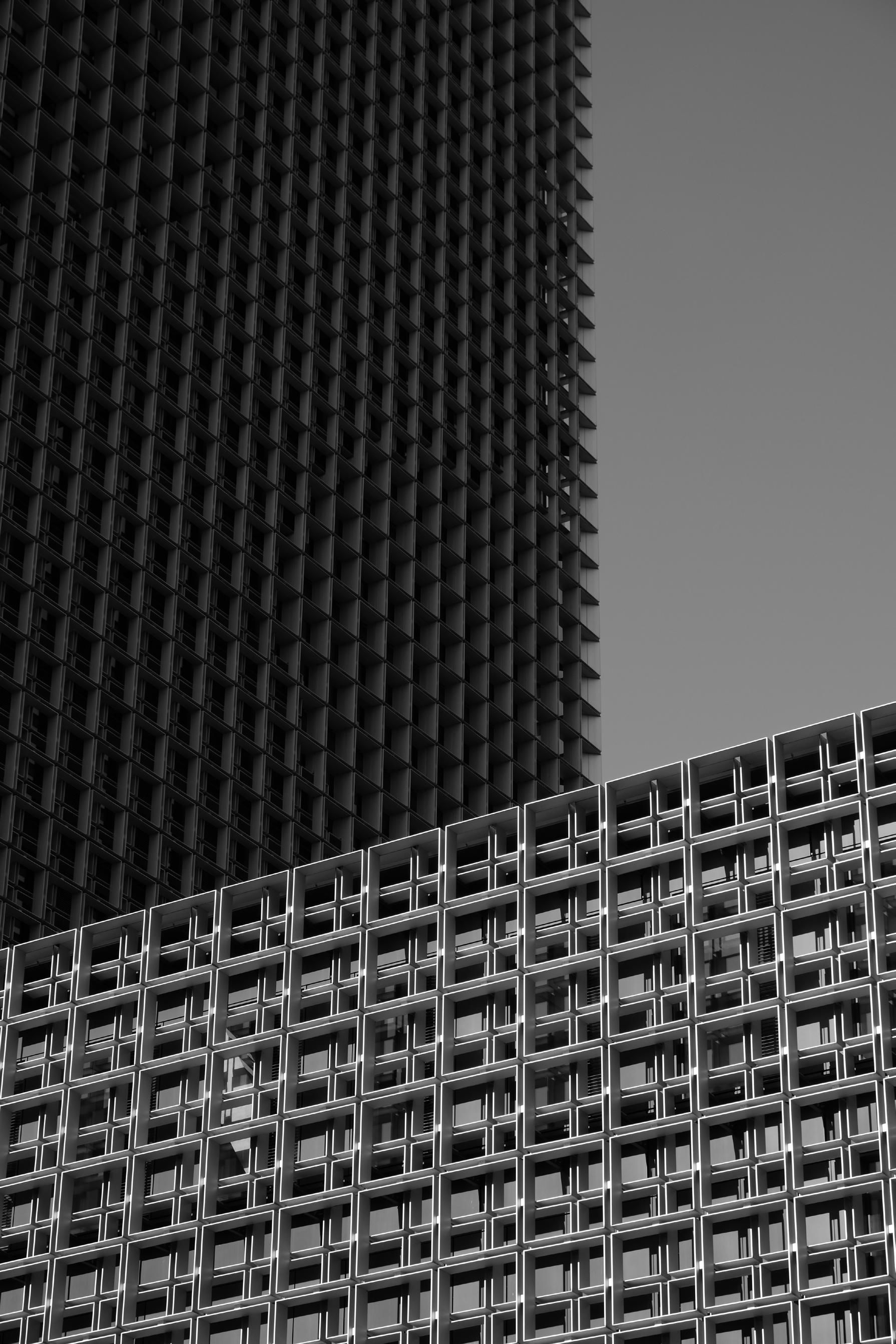
28
Now as life rushes by, I love slowing it down just a bit by taking photos of the world around me. That way, if I ever miss it, I can always come back in a heartbeat. And who knows, perhaps through the photos I take, you too can get to travel through me.
 Liza Statsenko
Liza Statsenko
29
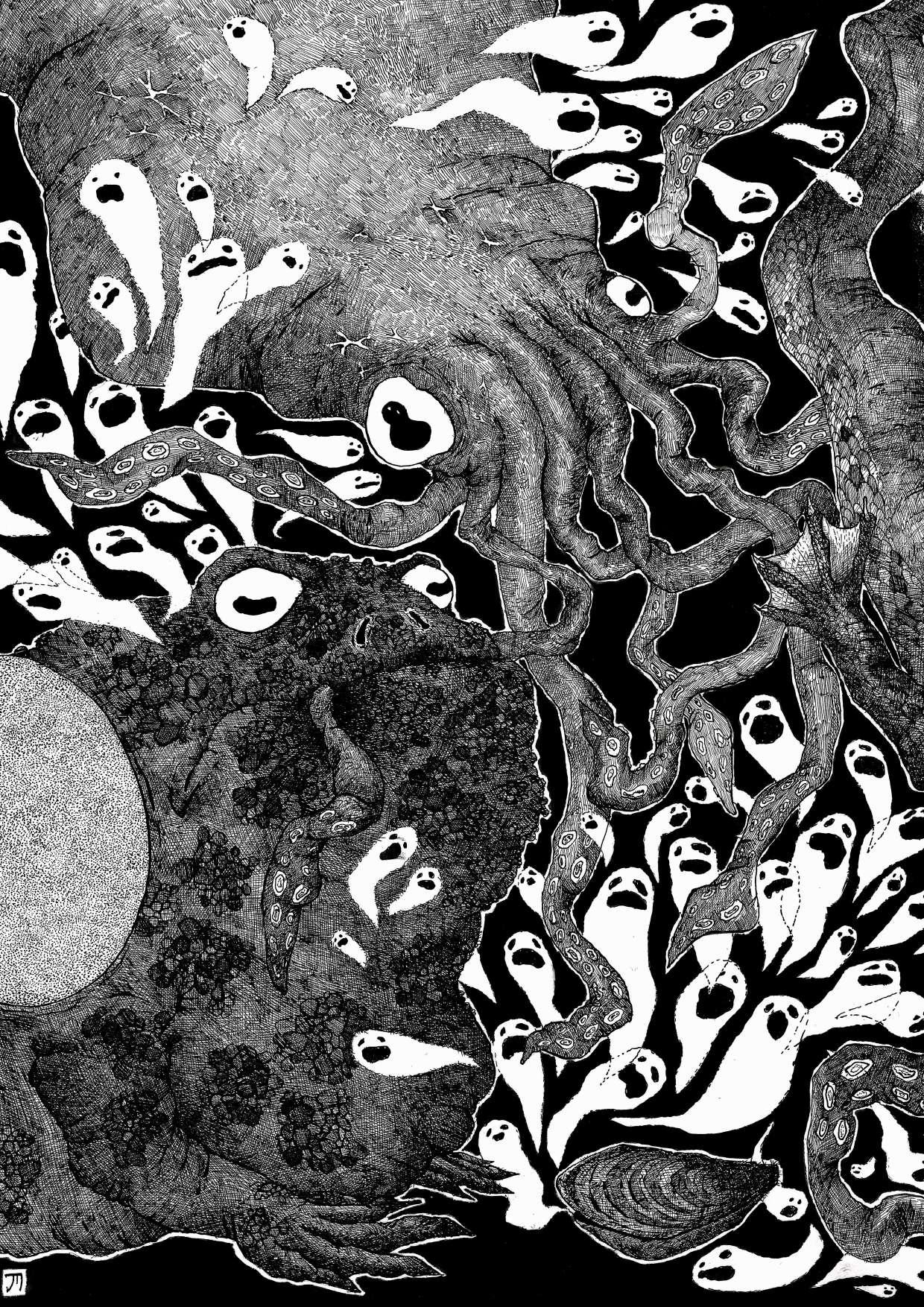






 by Zoltan Tajti
by Zoltan Tajti






 by Kieran Salt
by Kieran Salt
























 by Zoltan Tajti
by Zoltan Tajti













 by Jennifer Jacquemin
by Jennifer Jacquemin





 Liza Statsenko
Liza Statsenko
